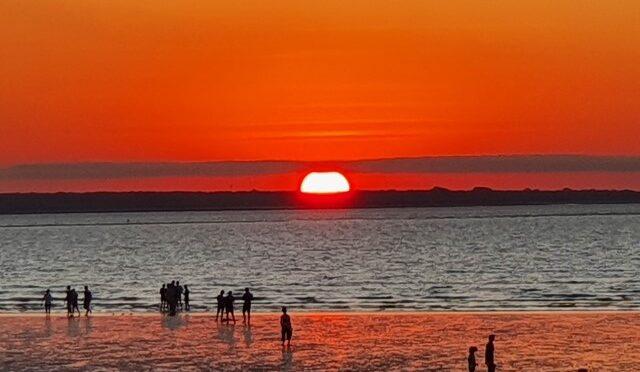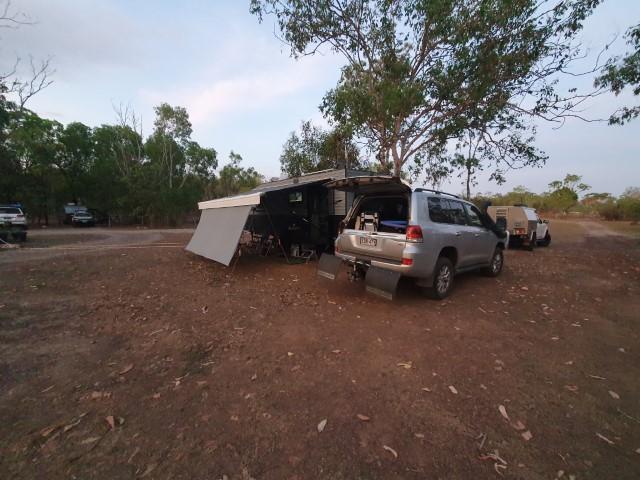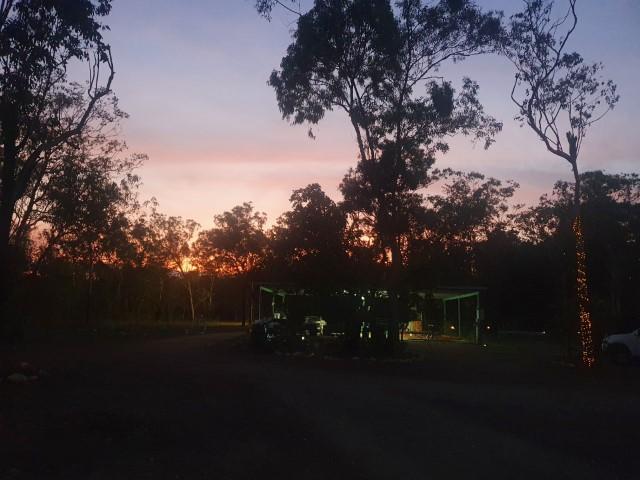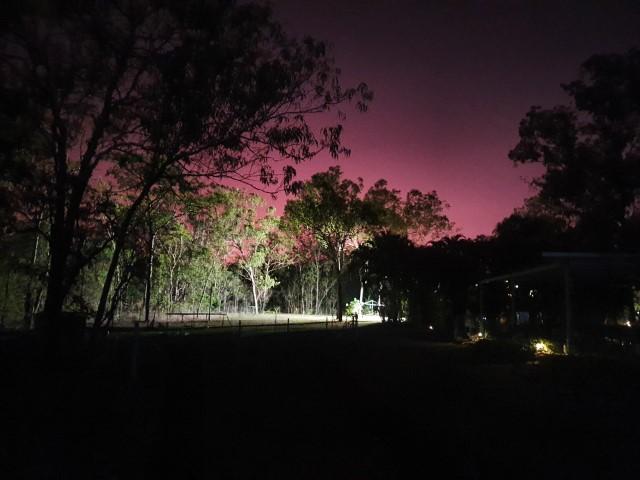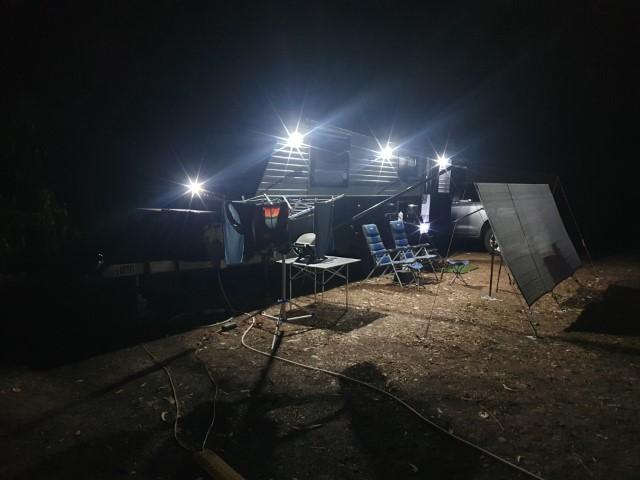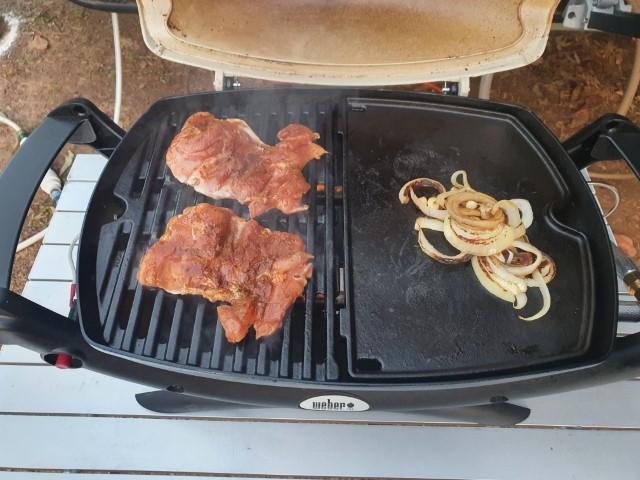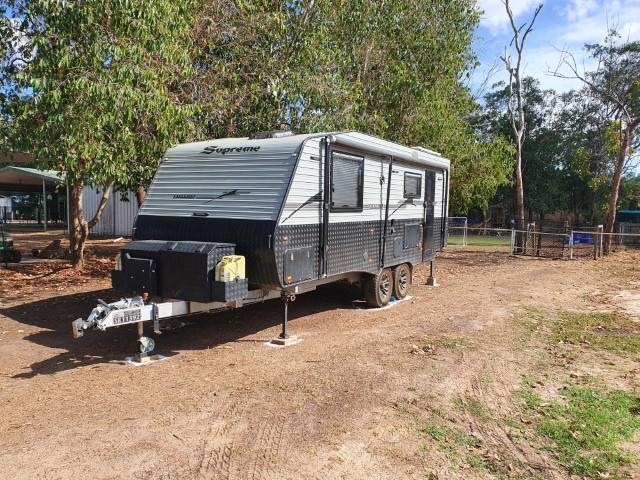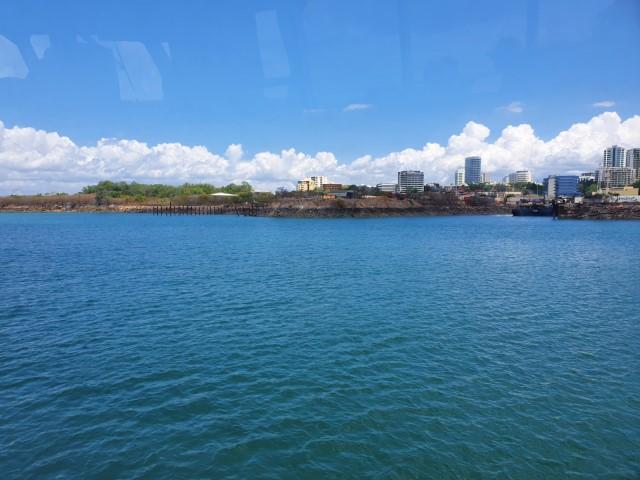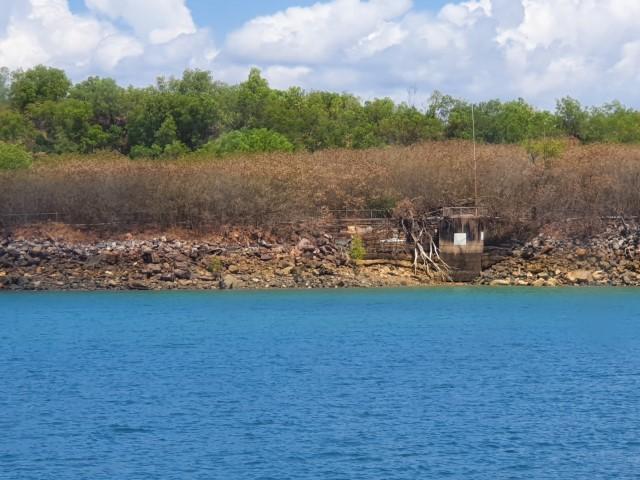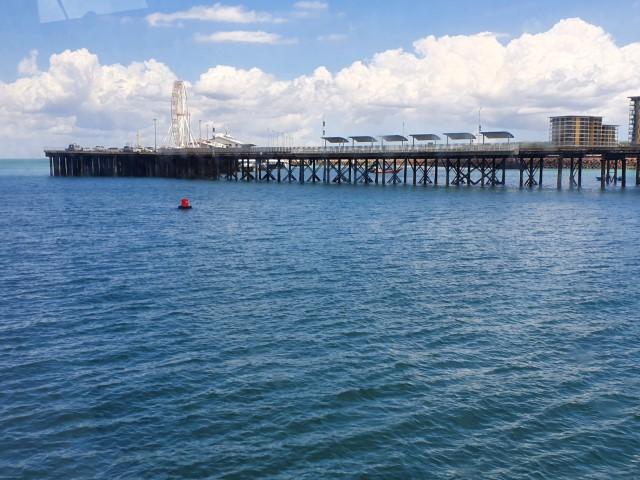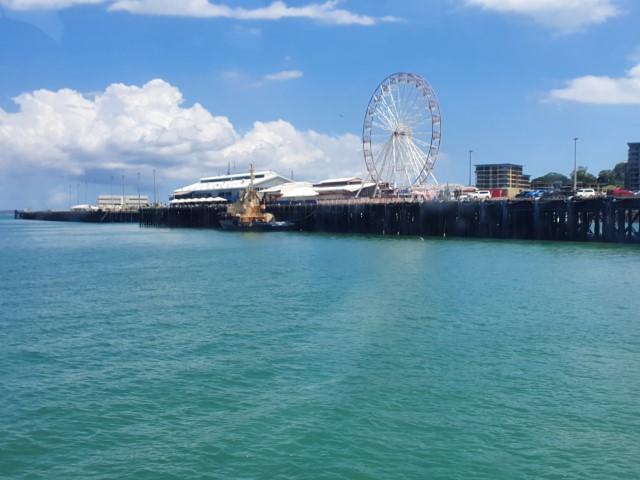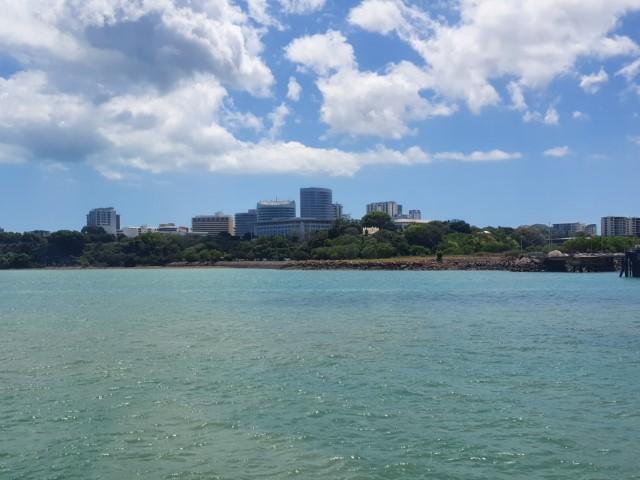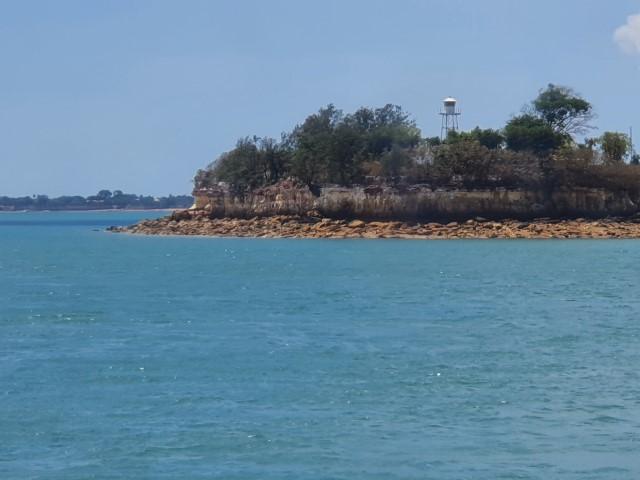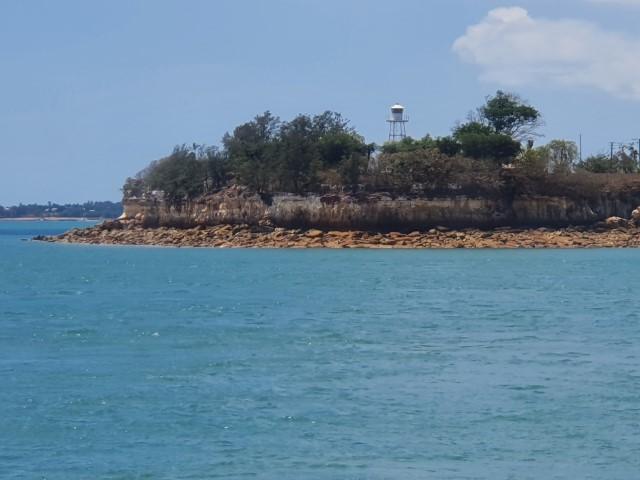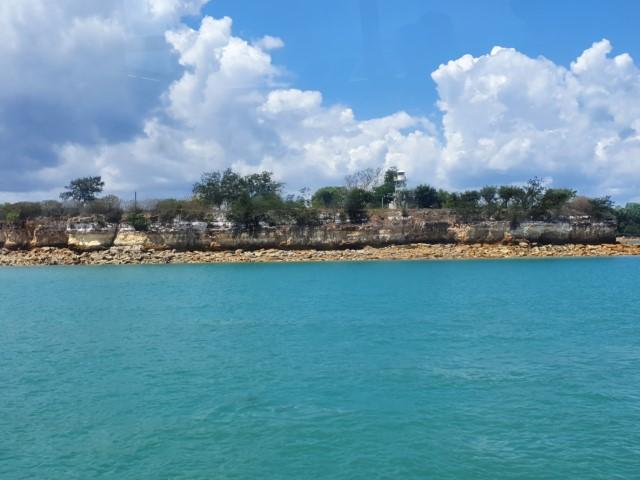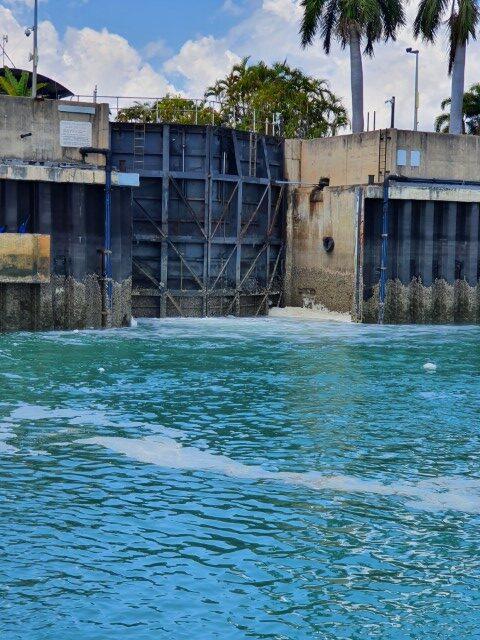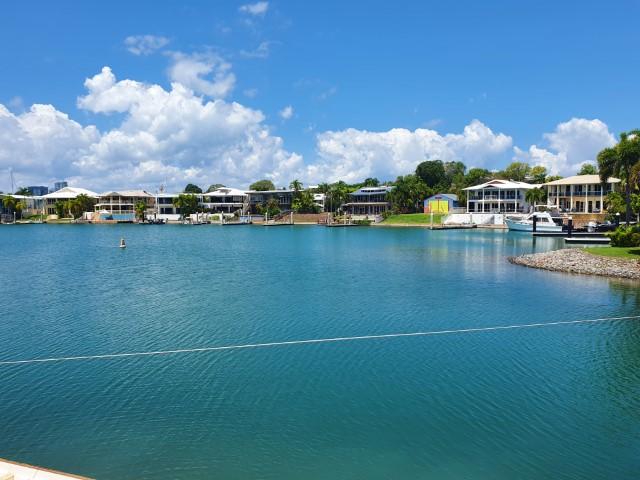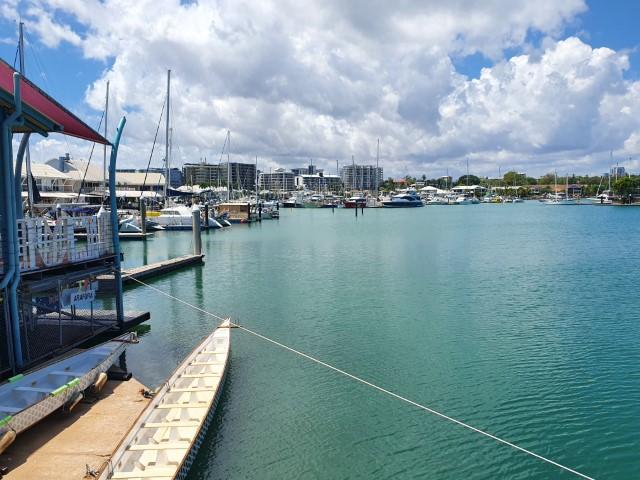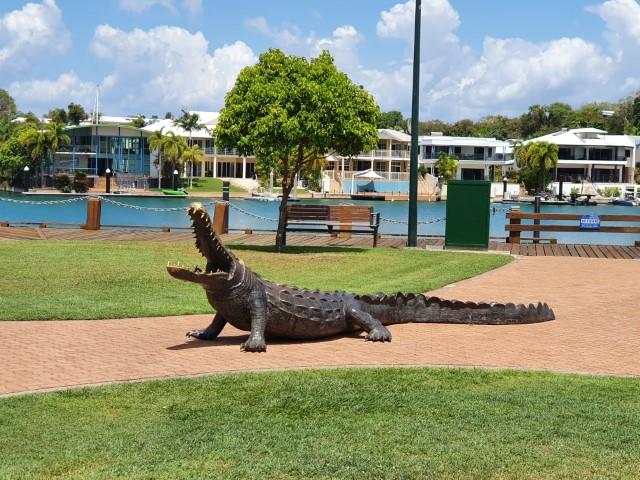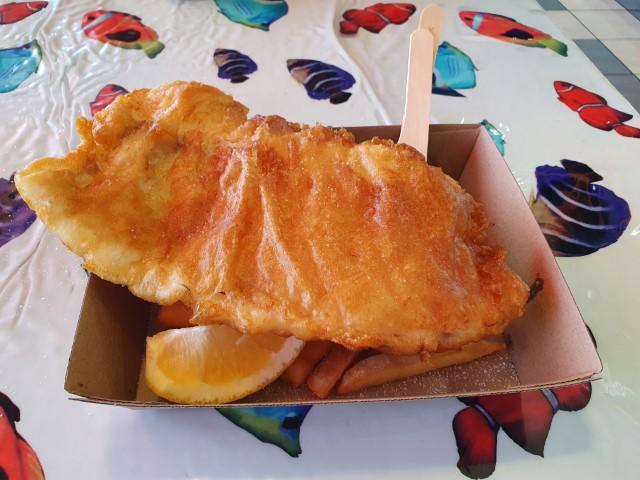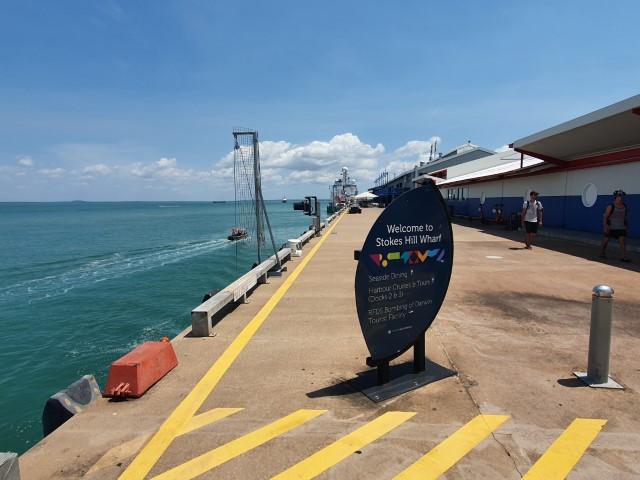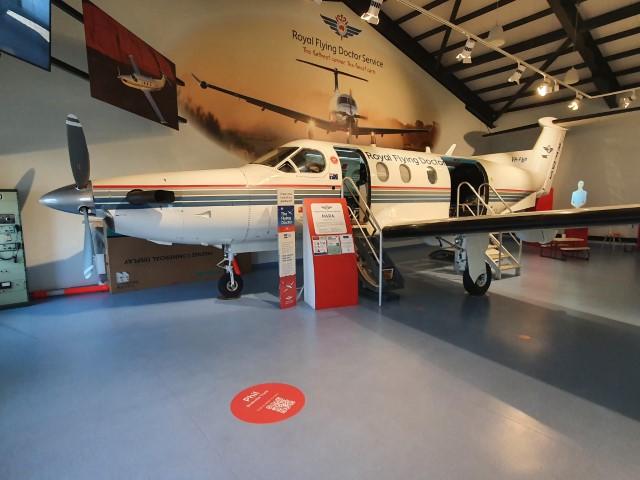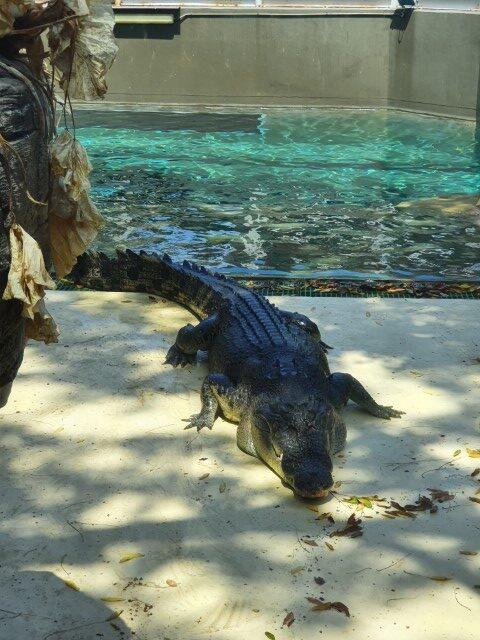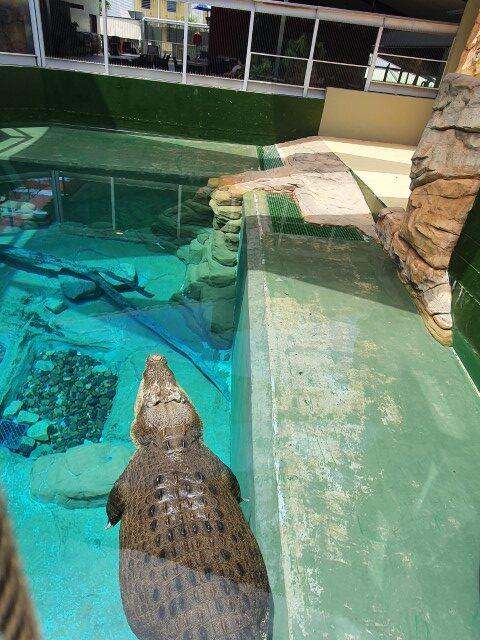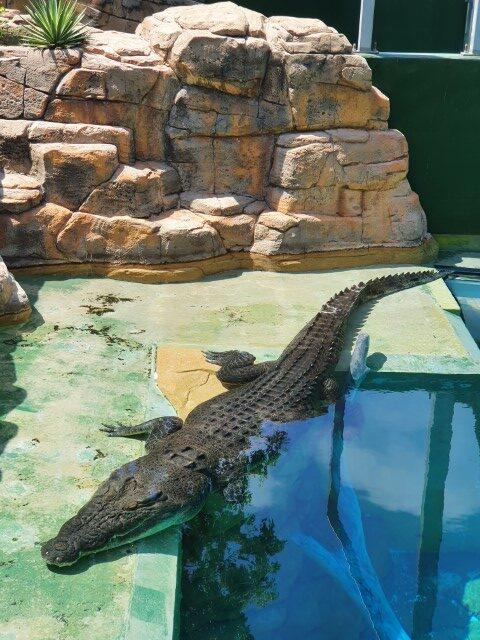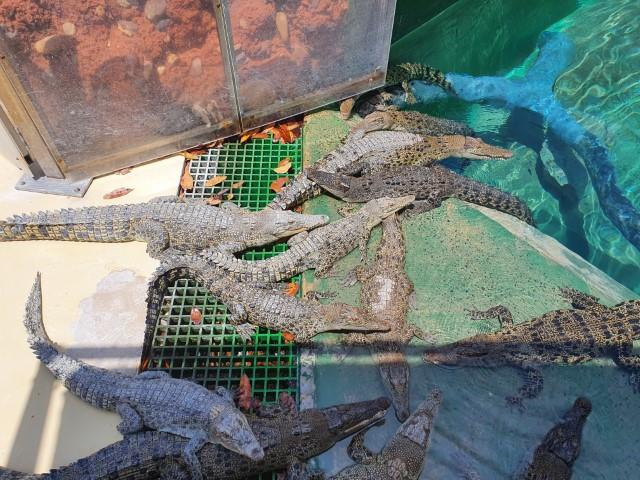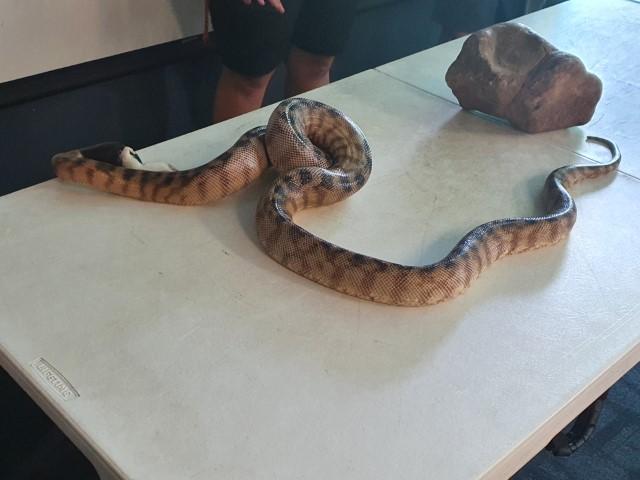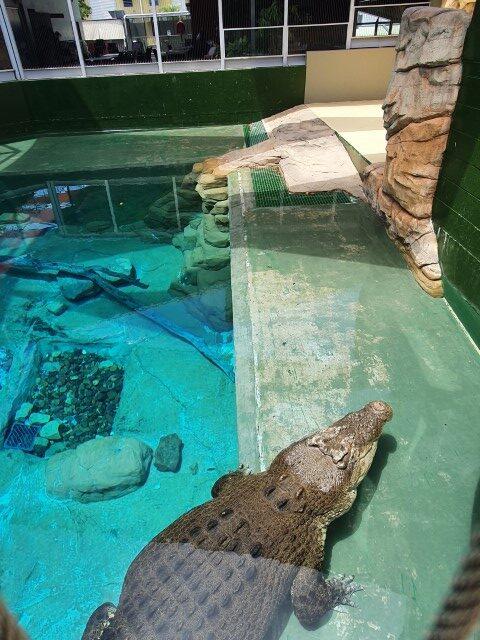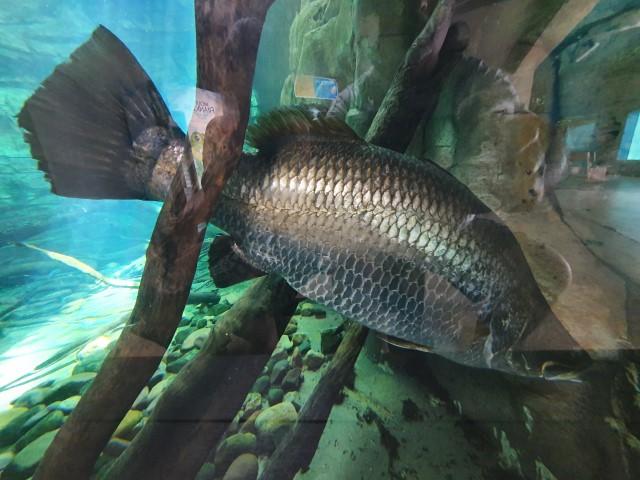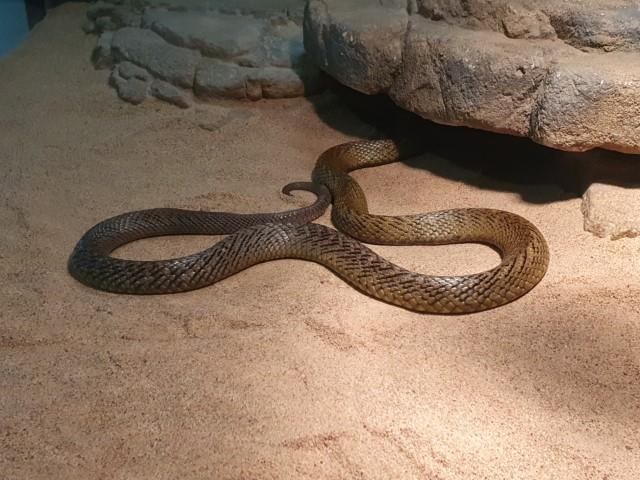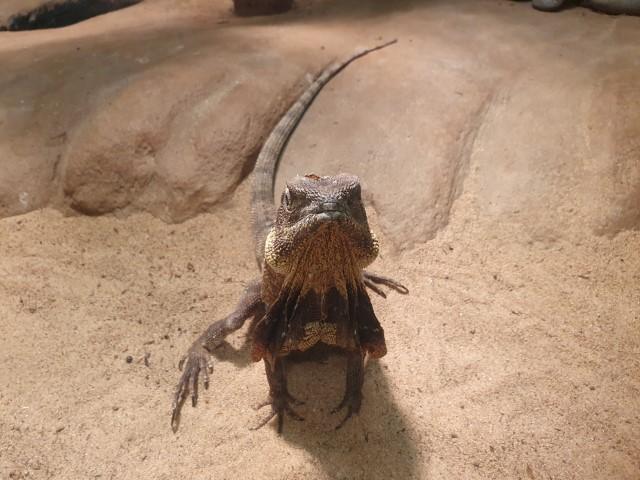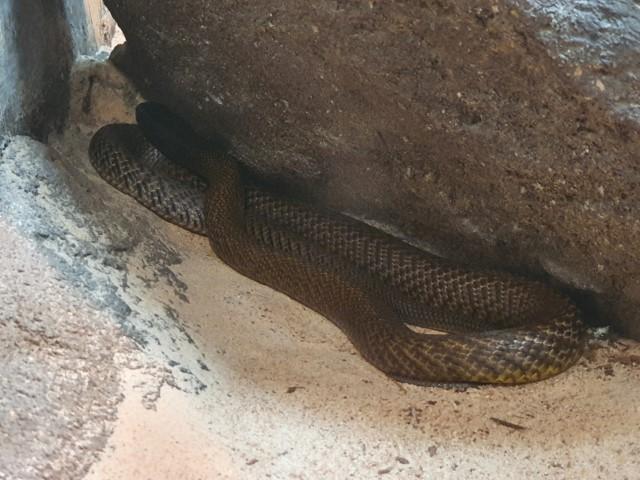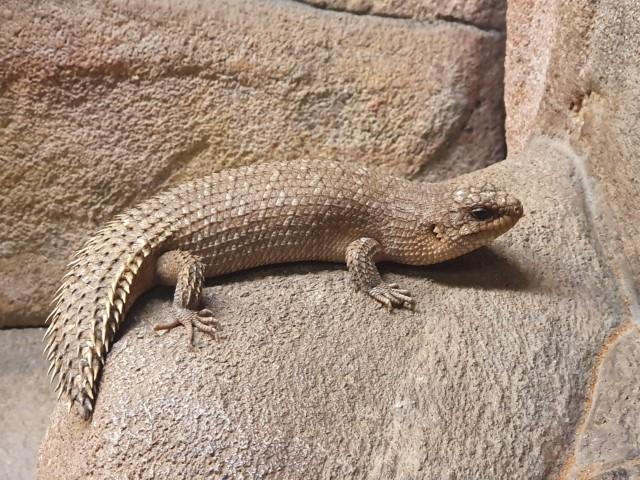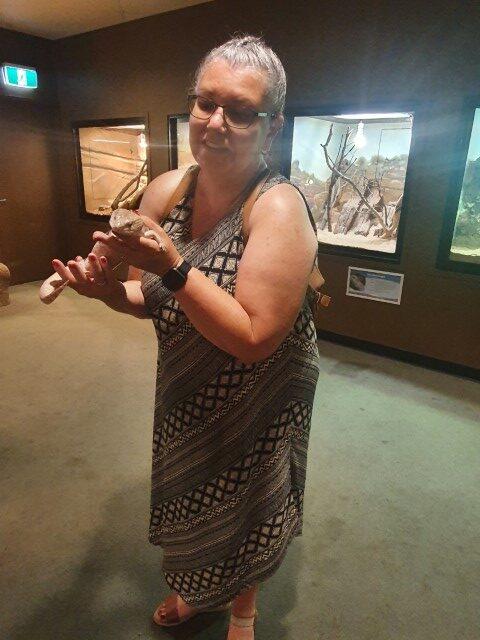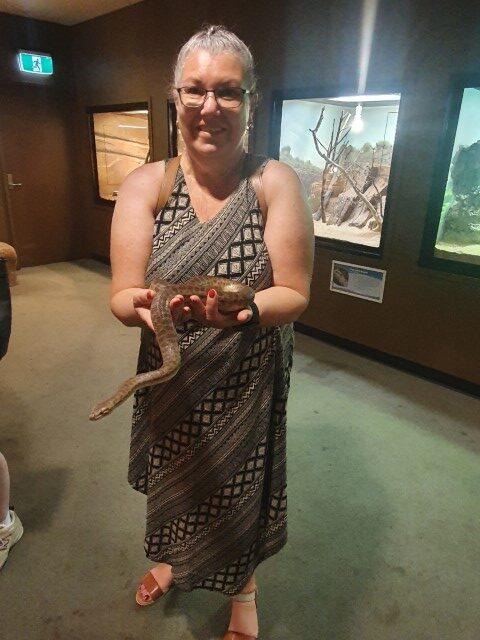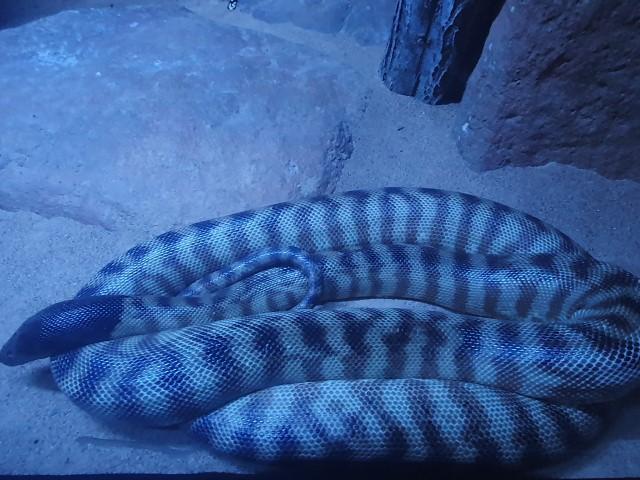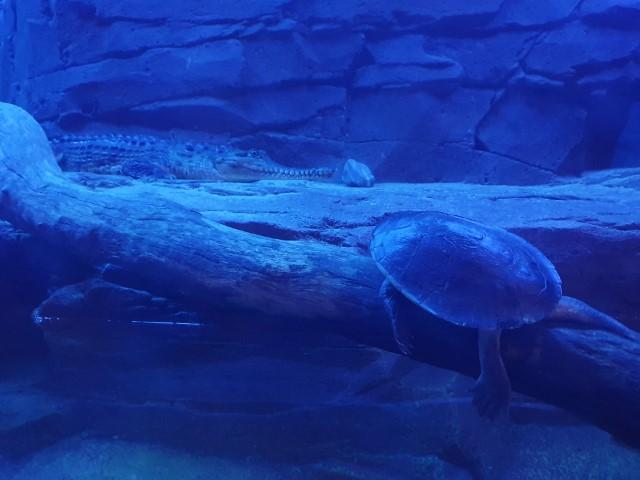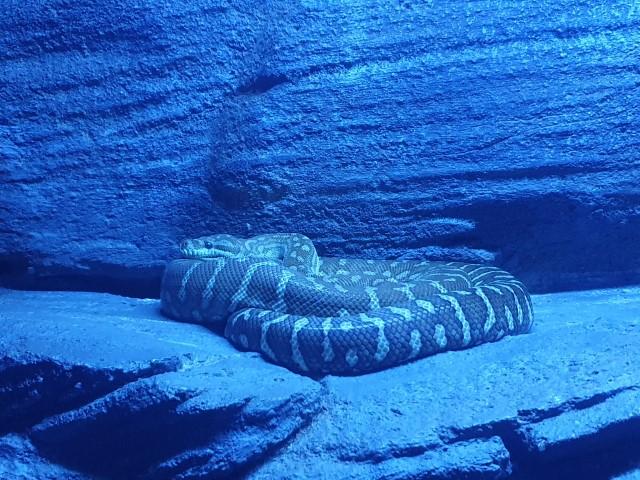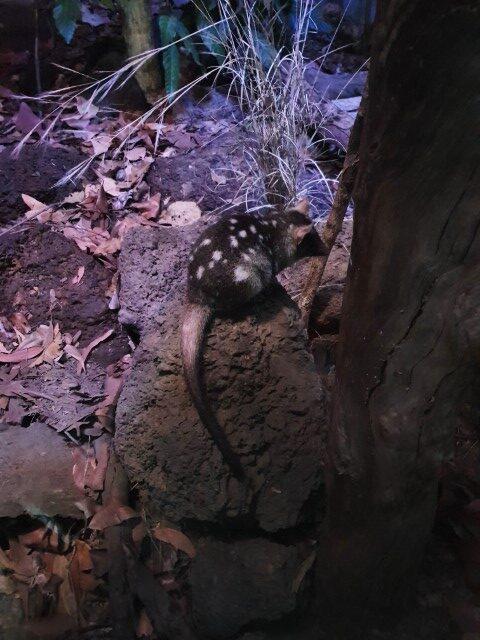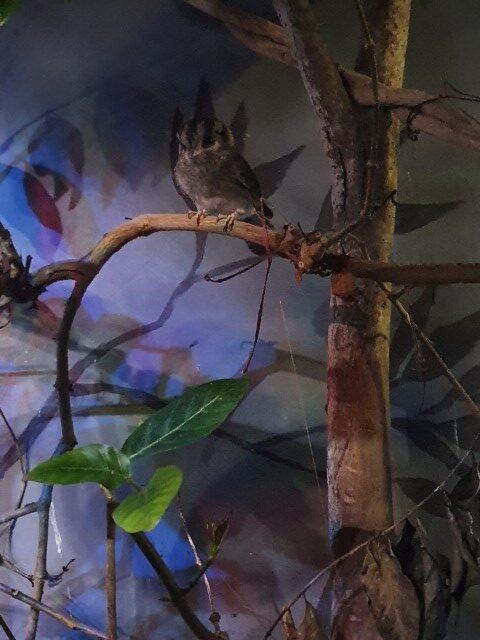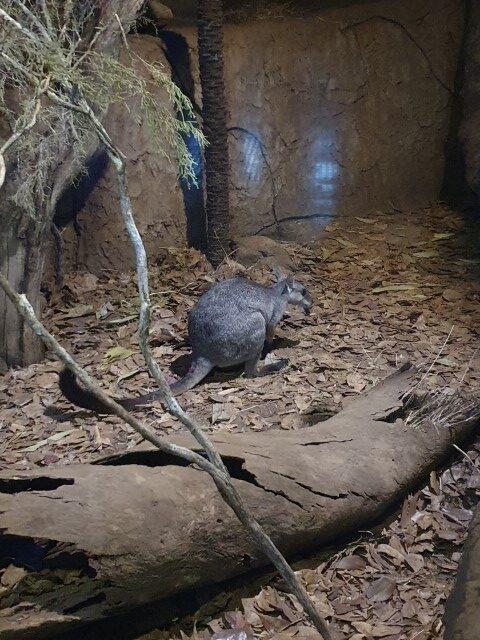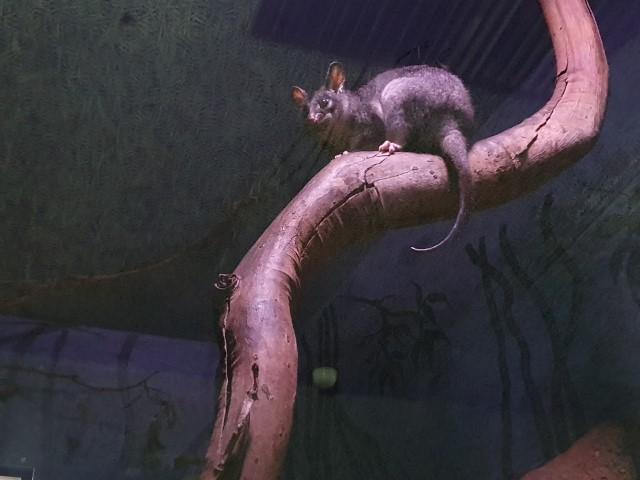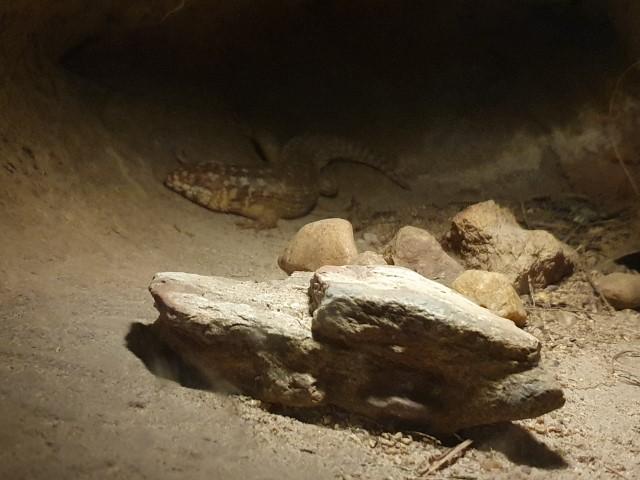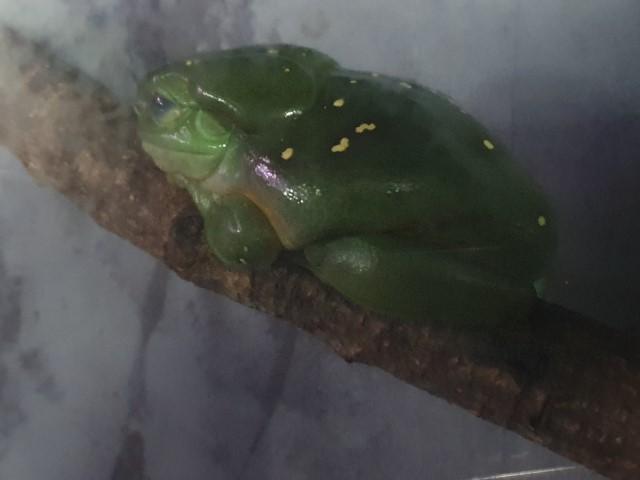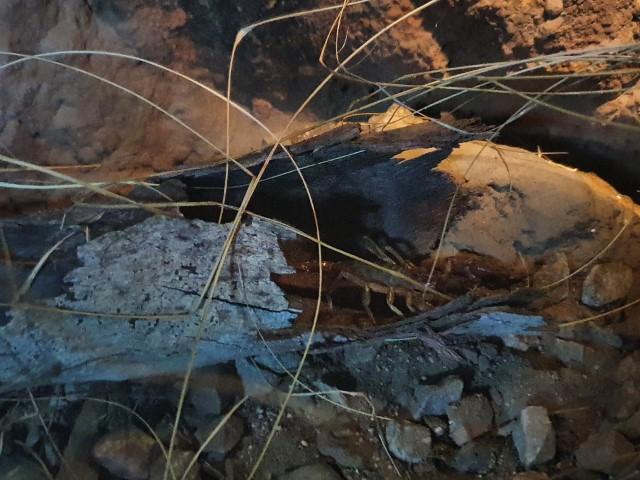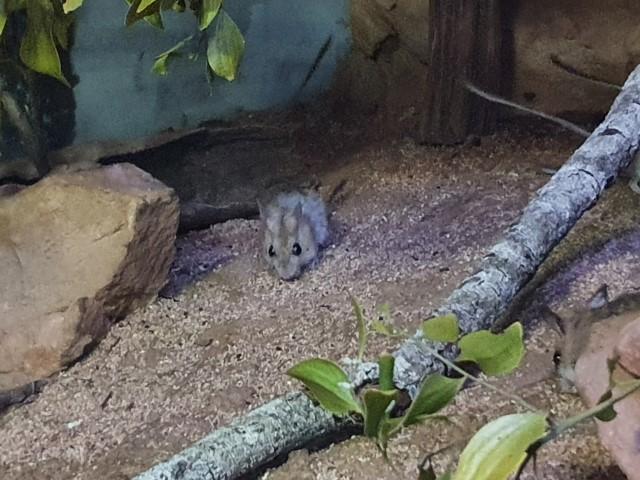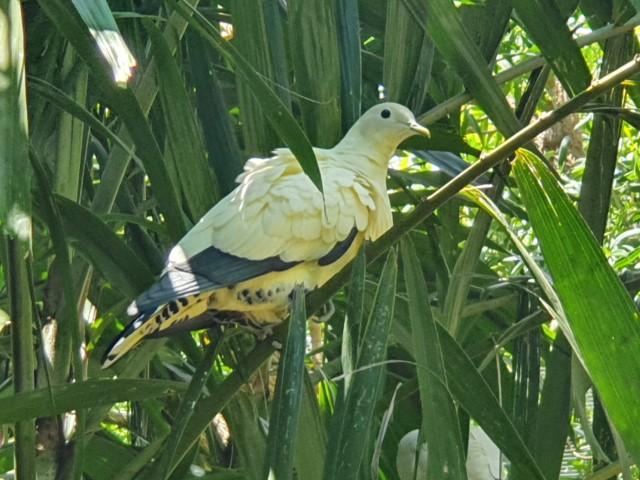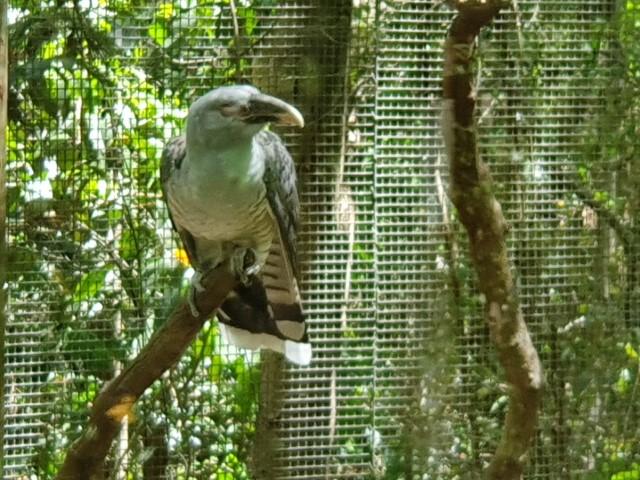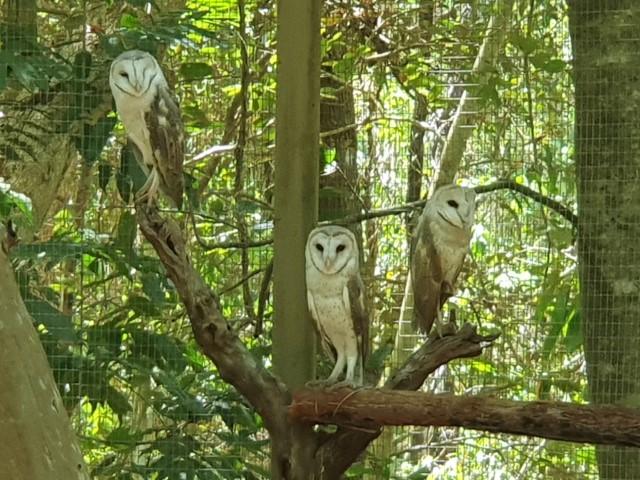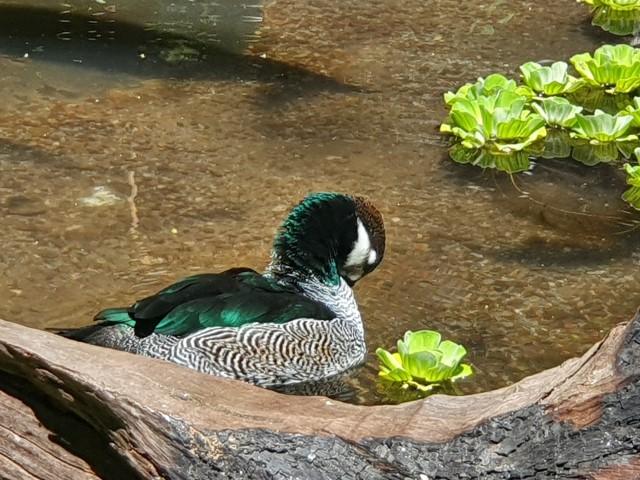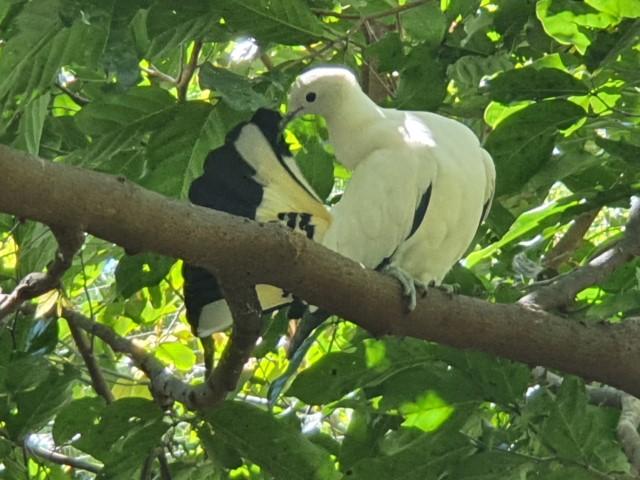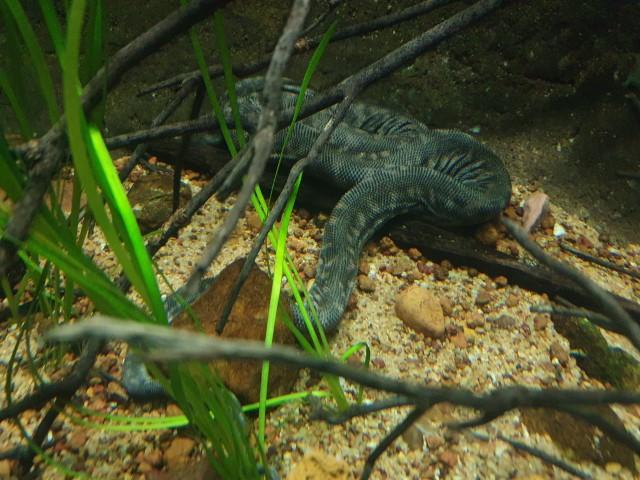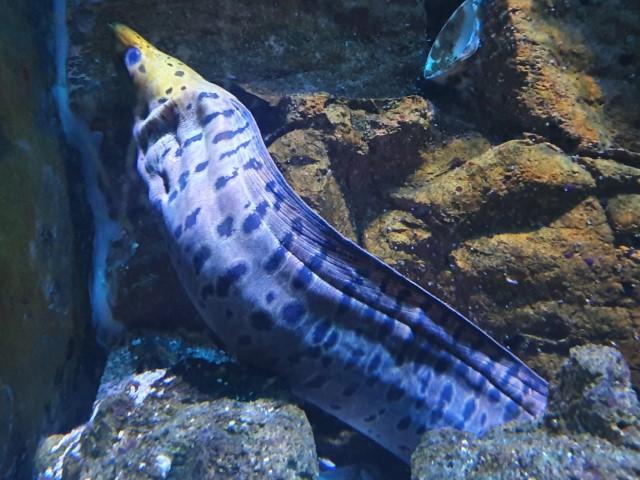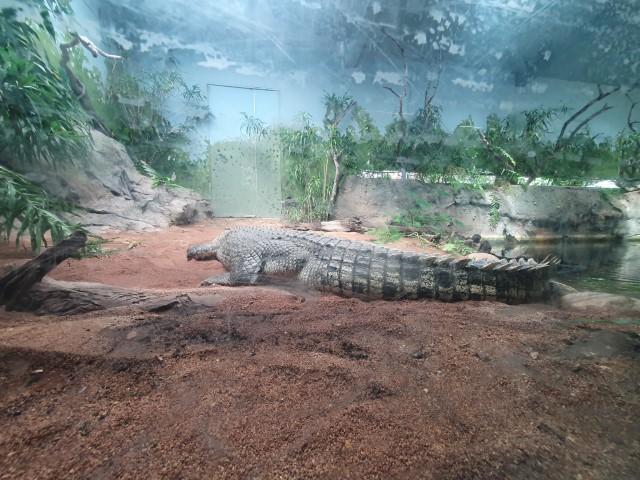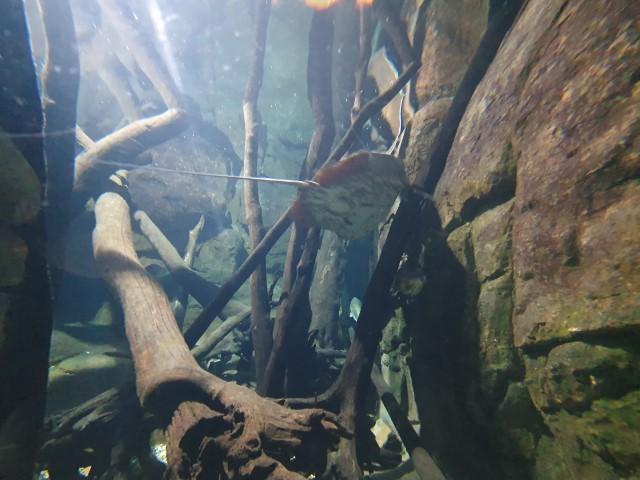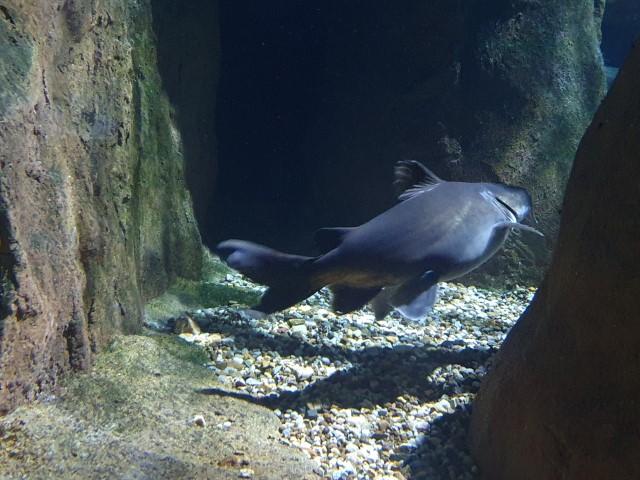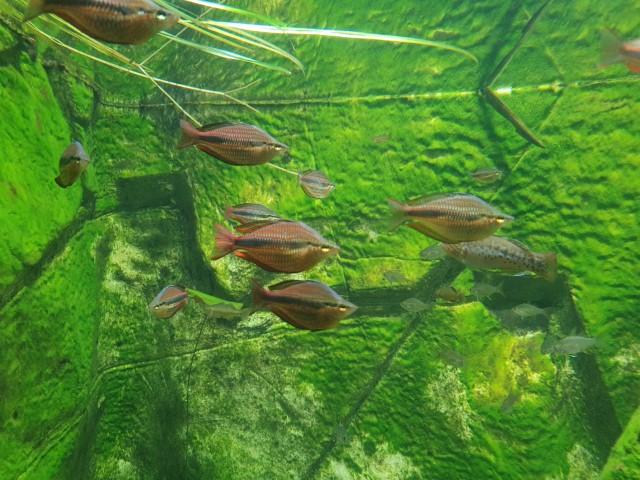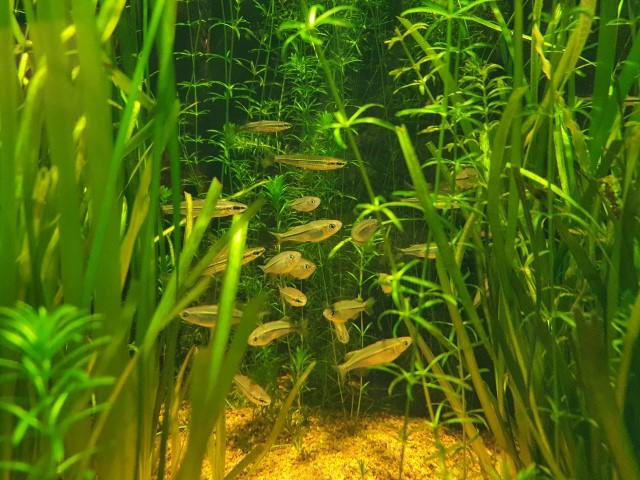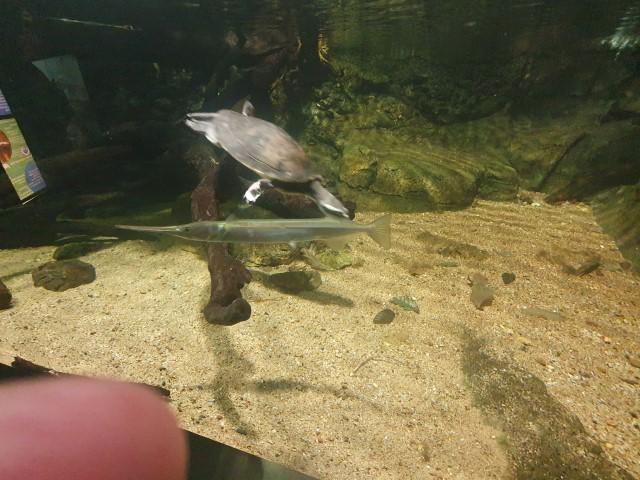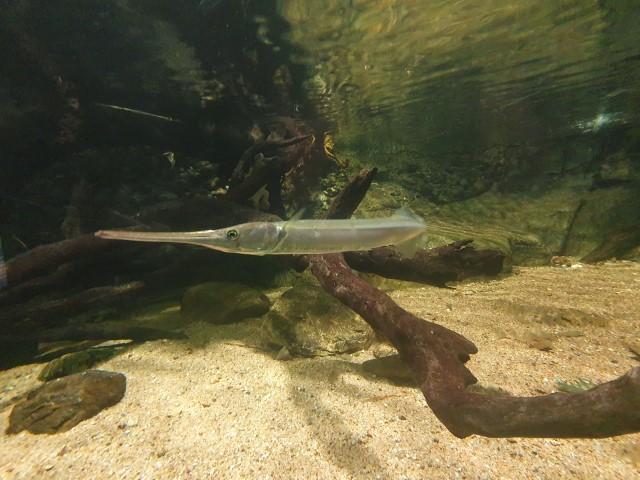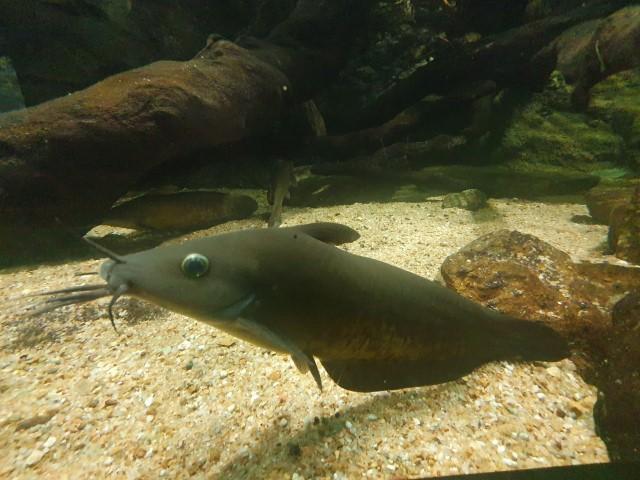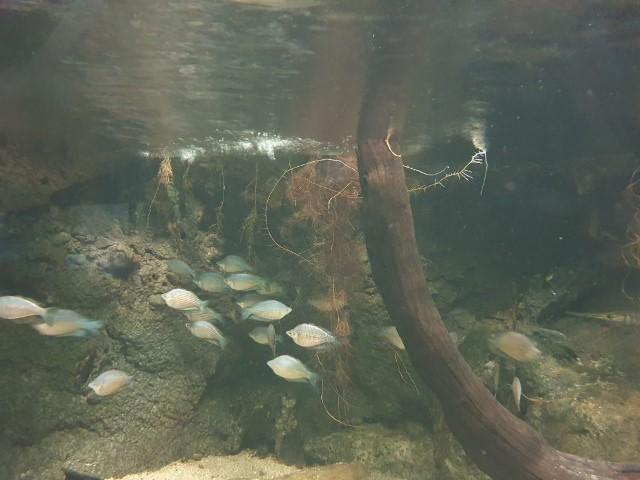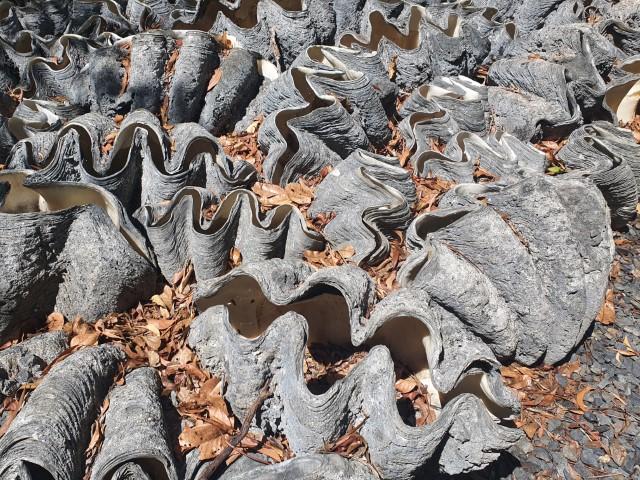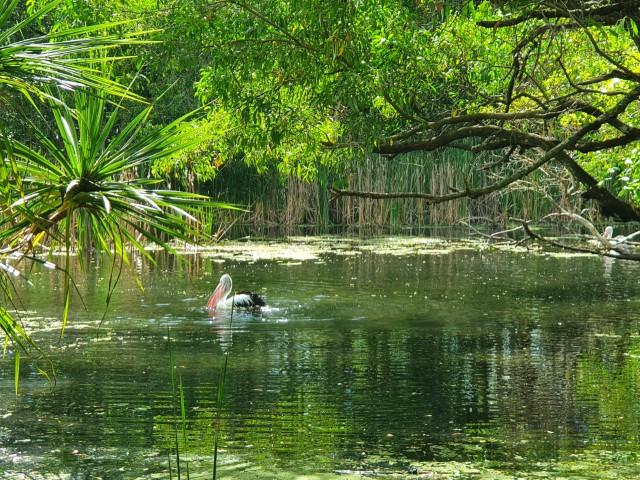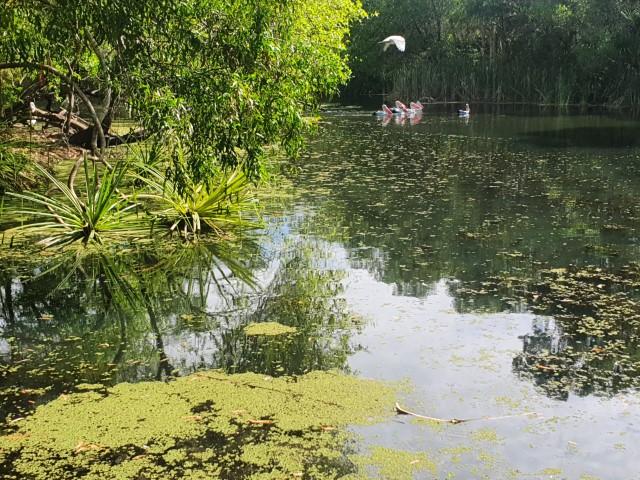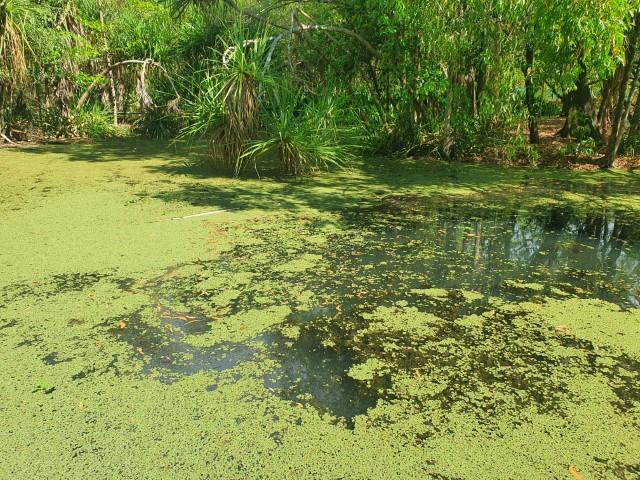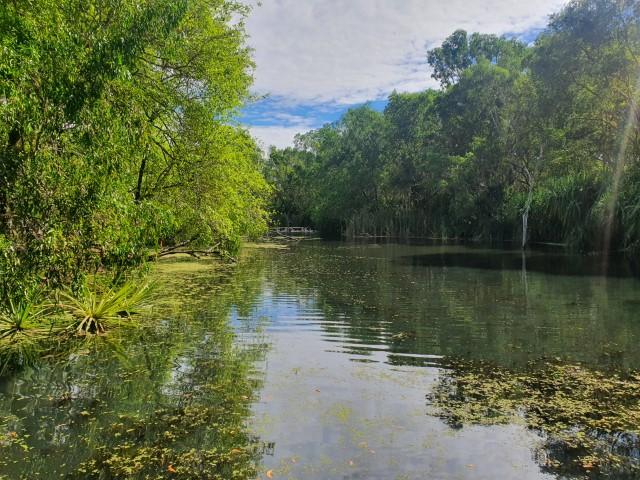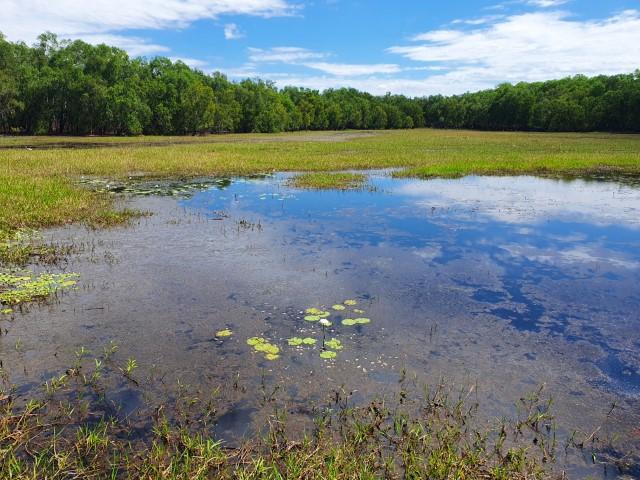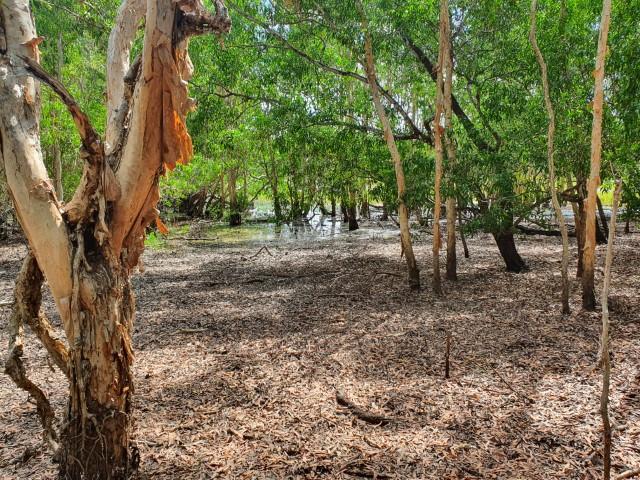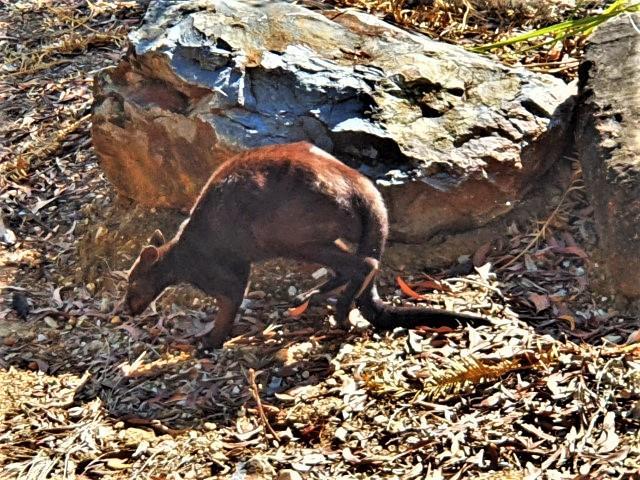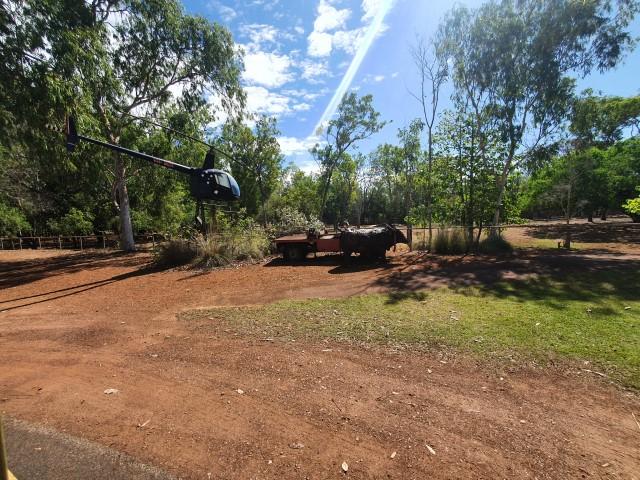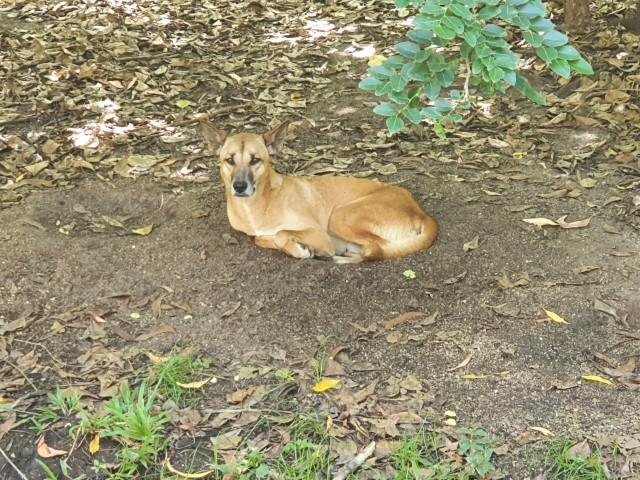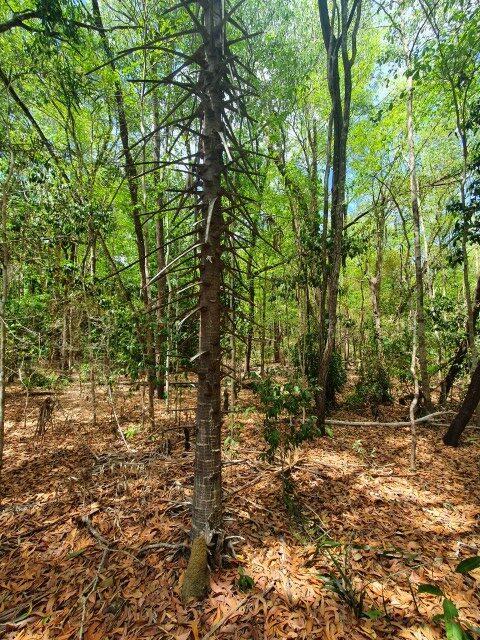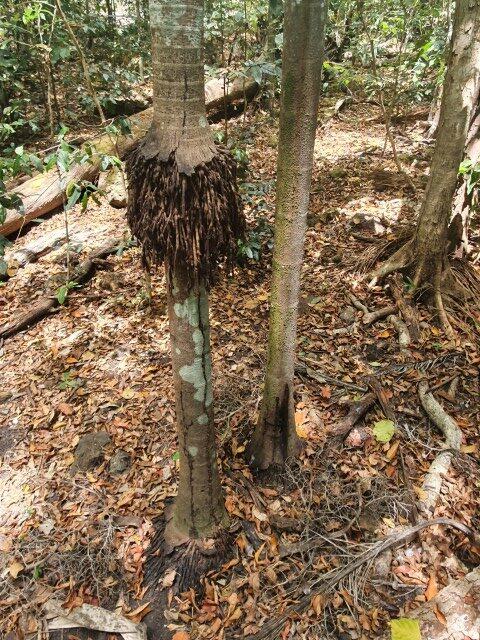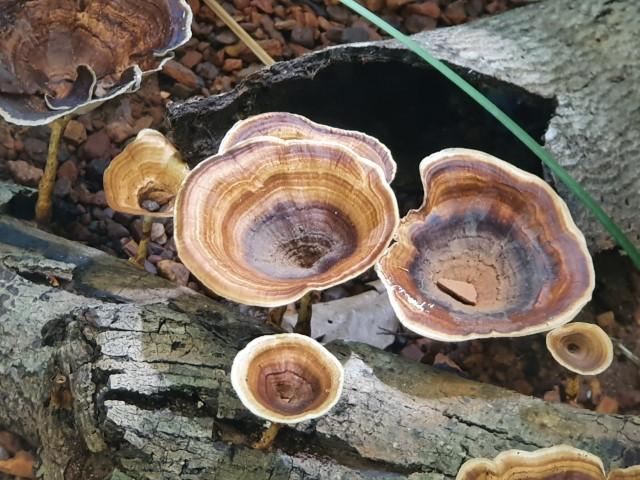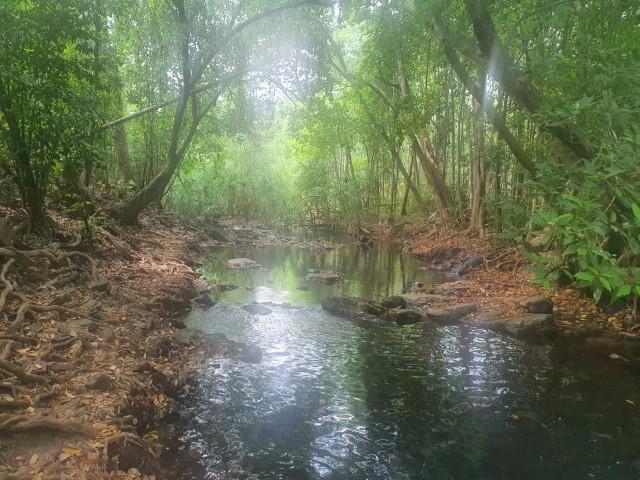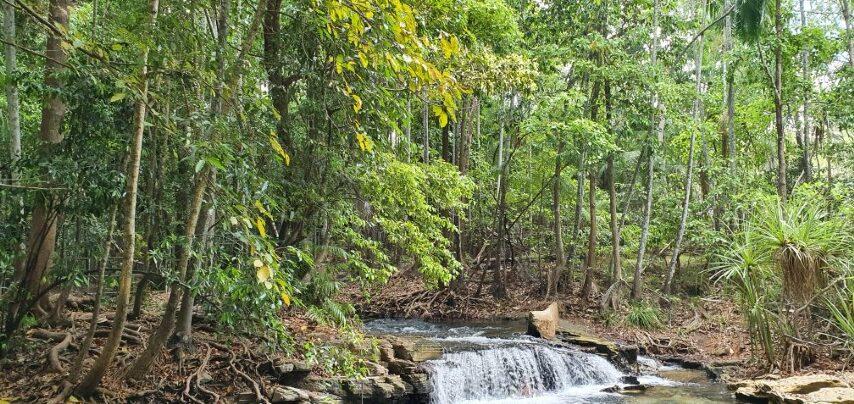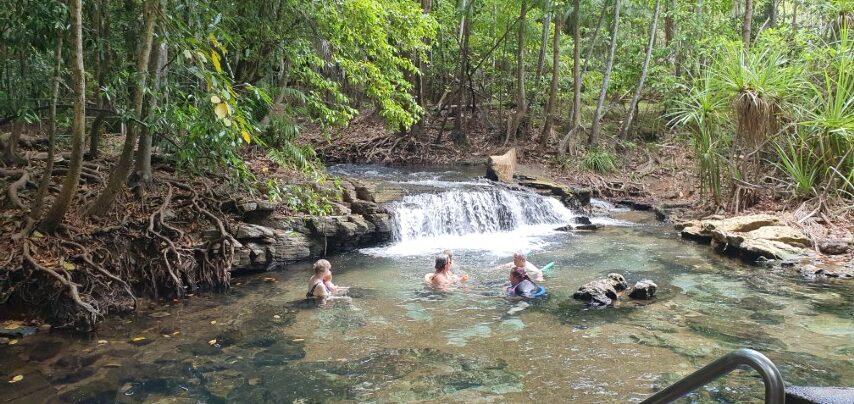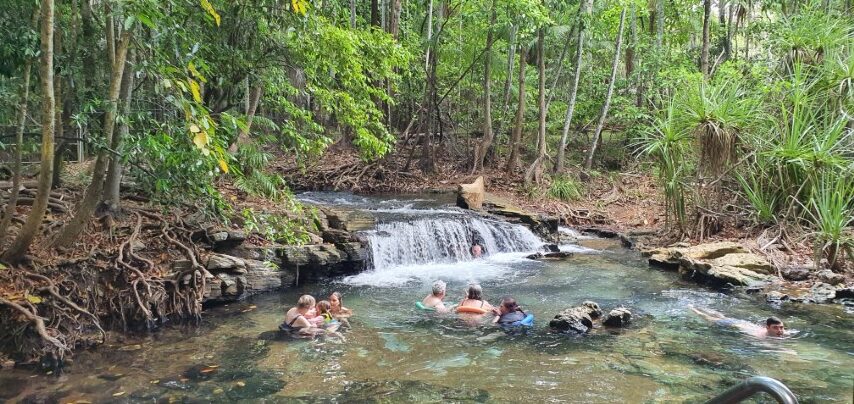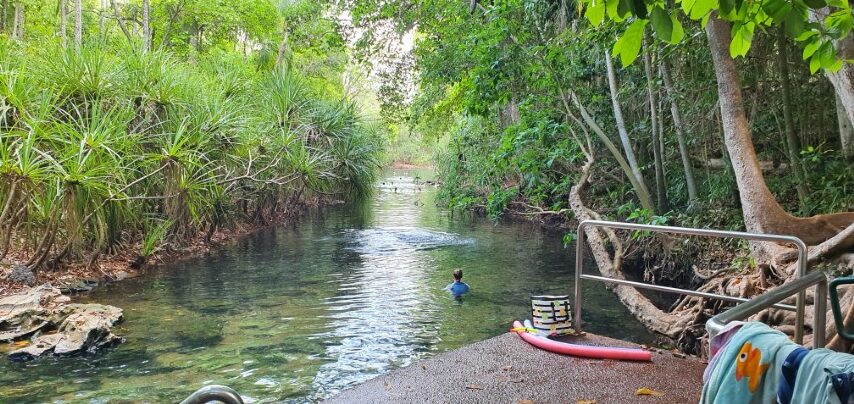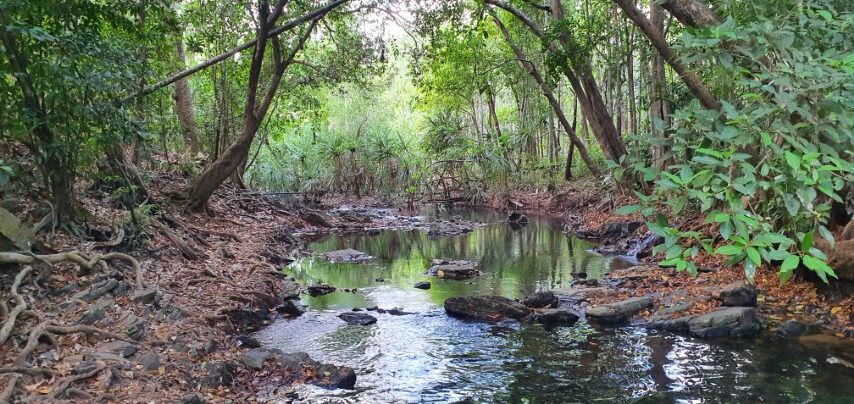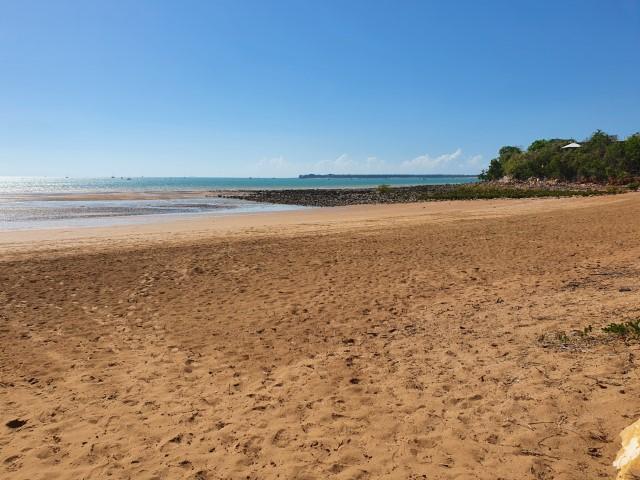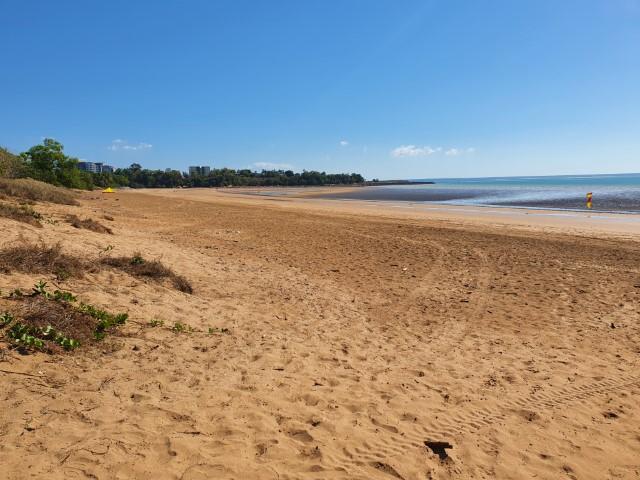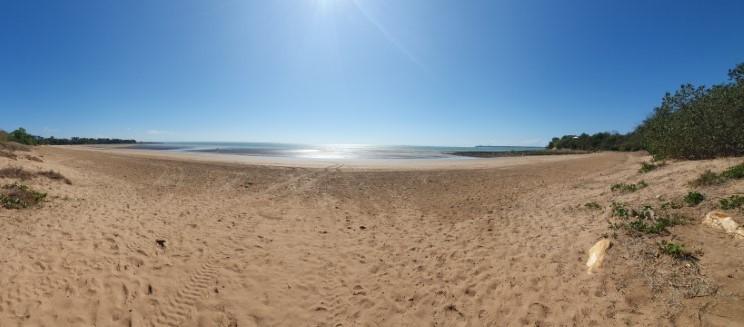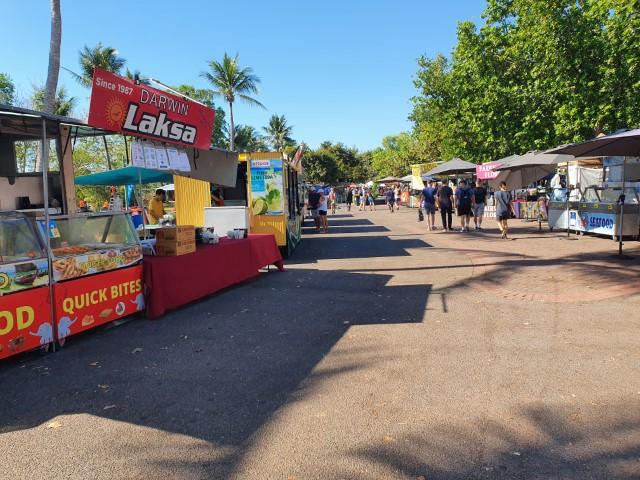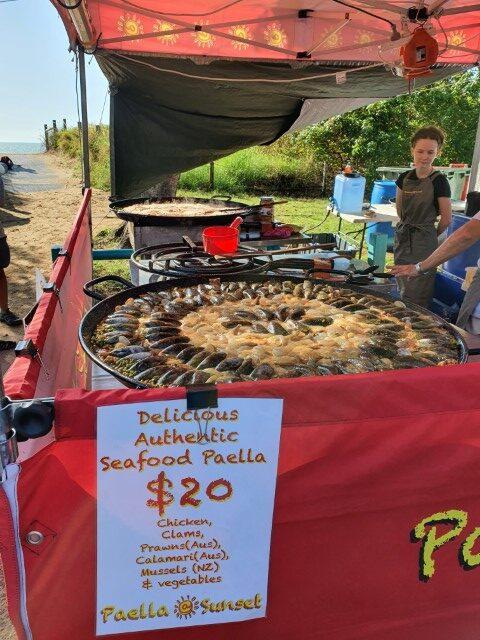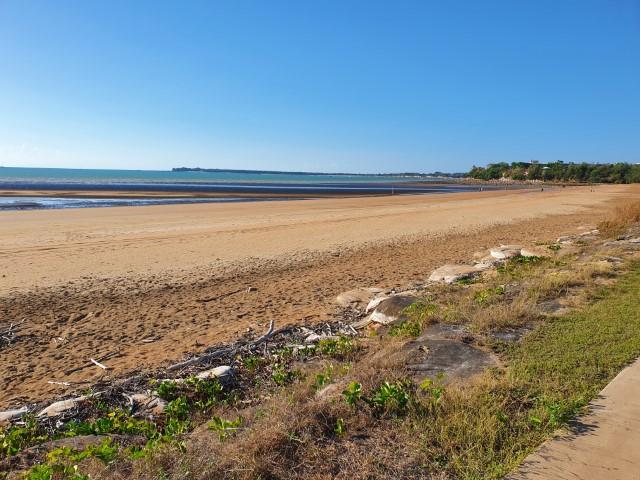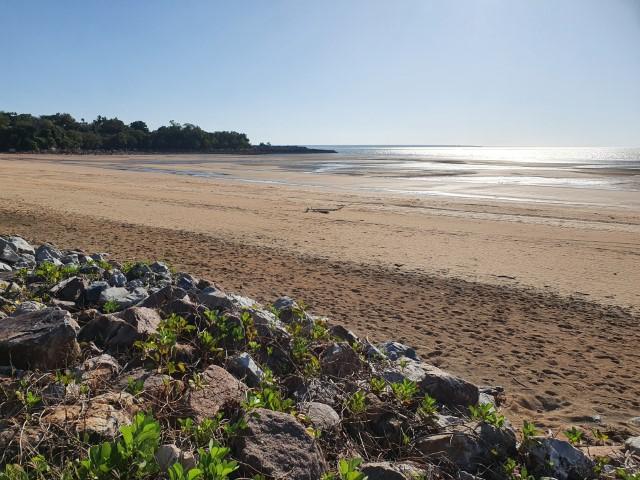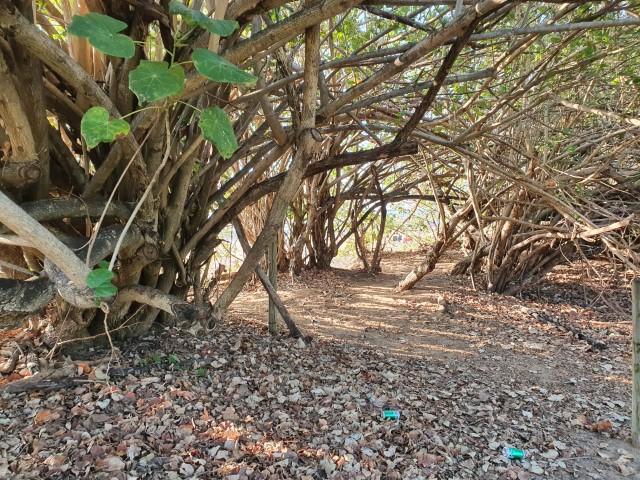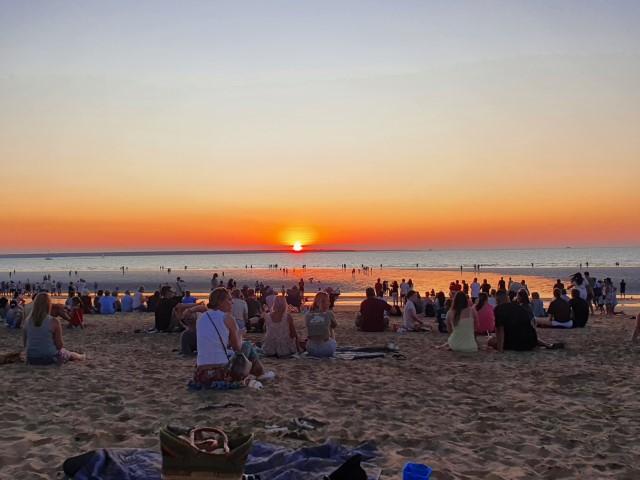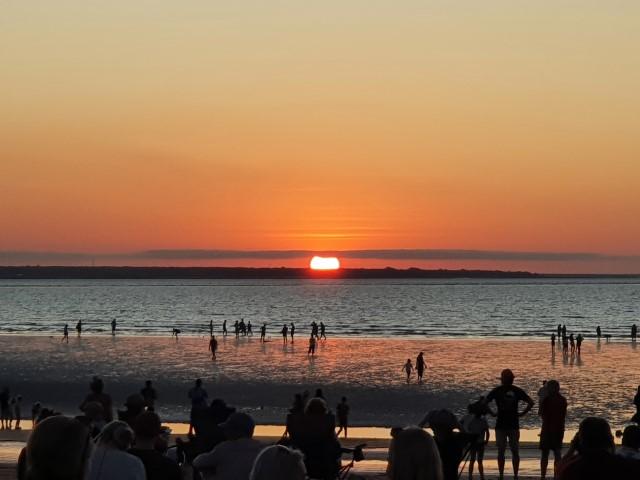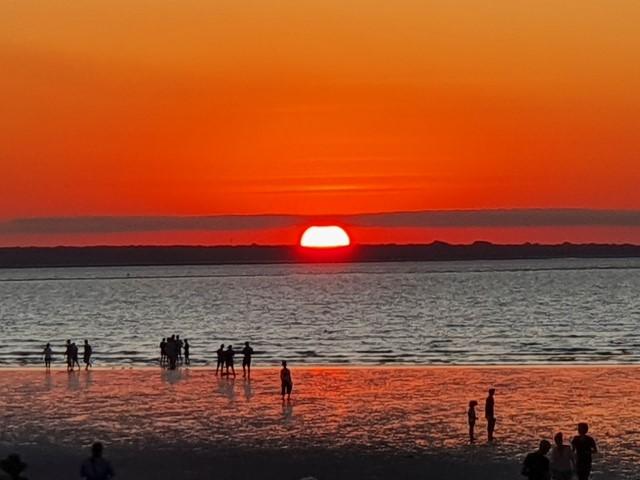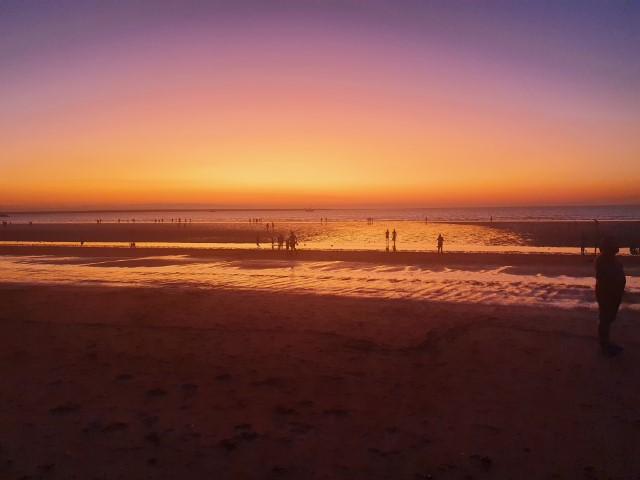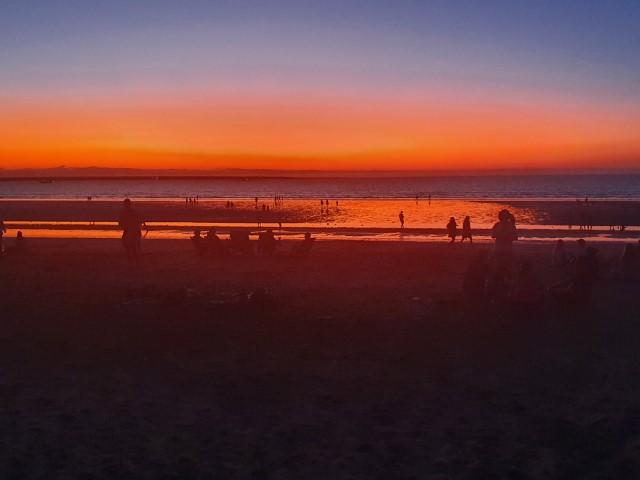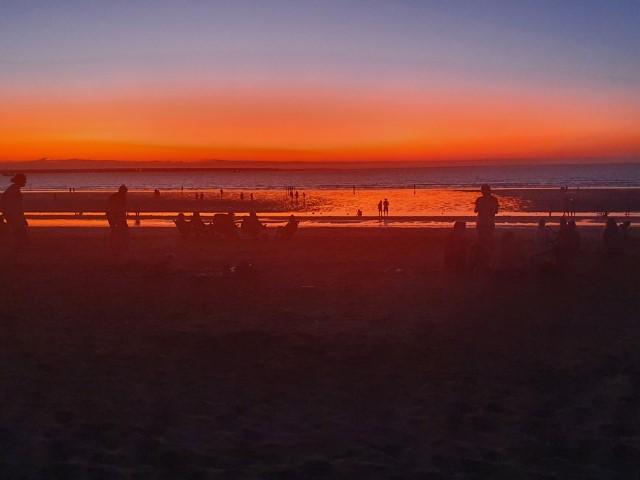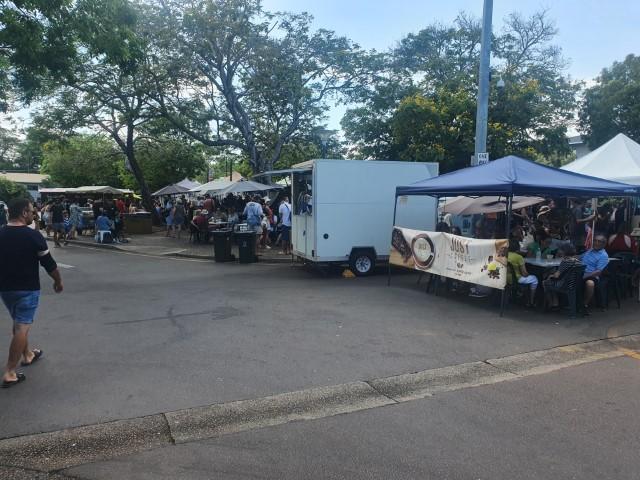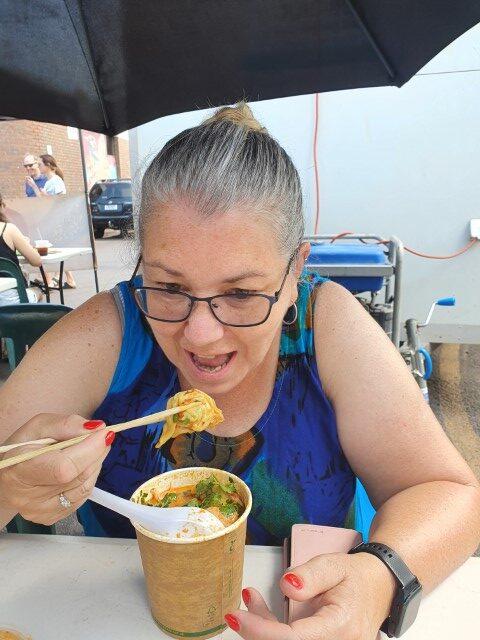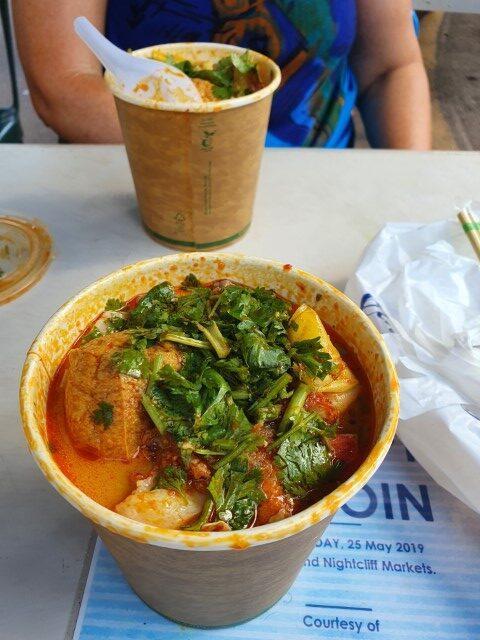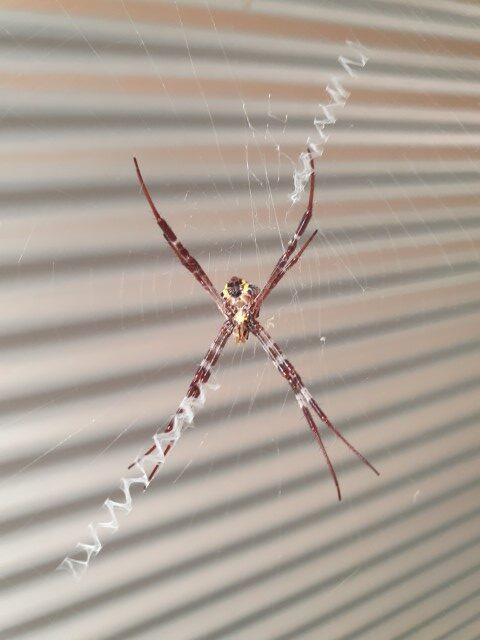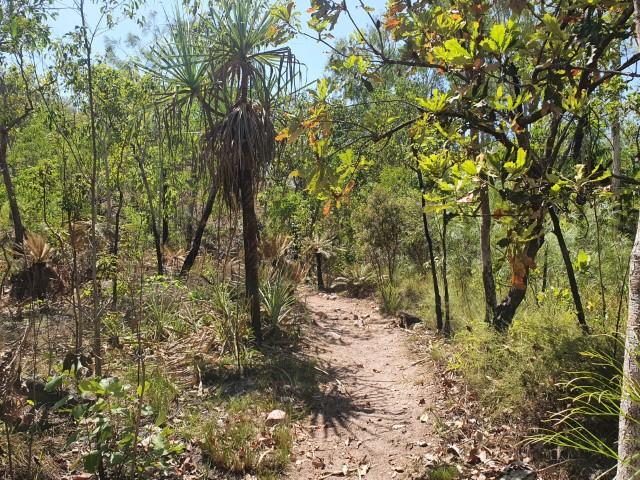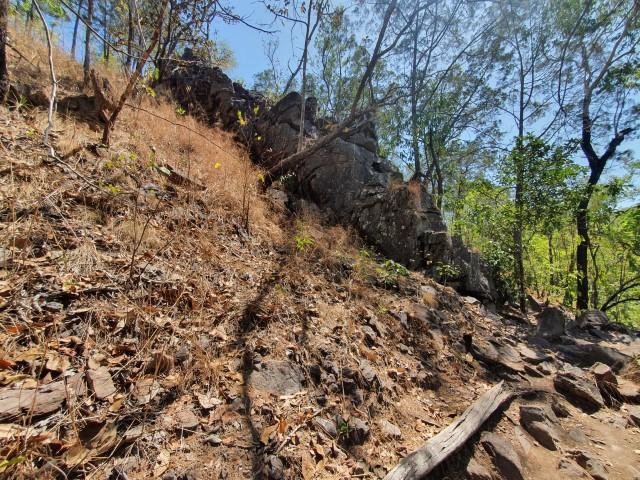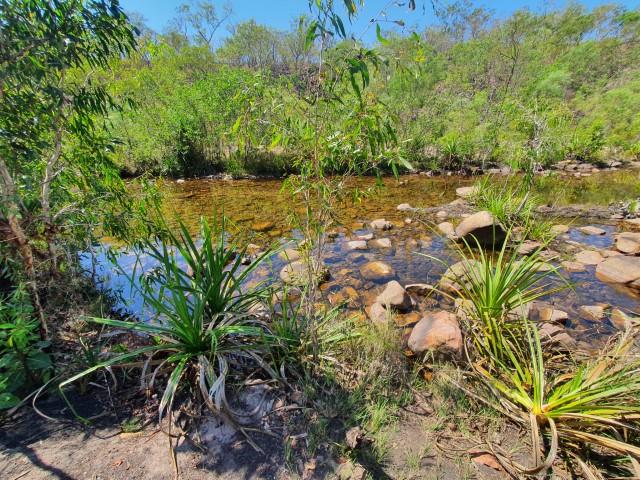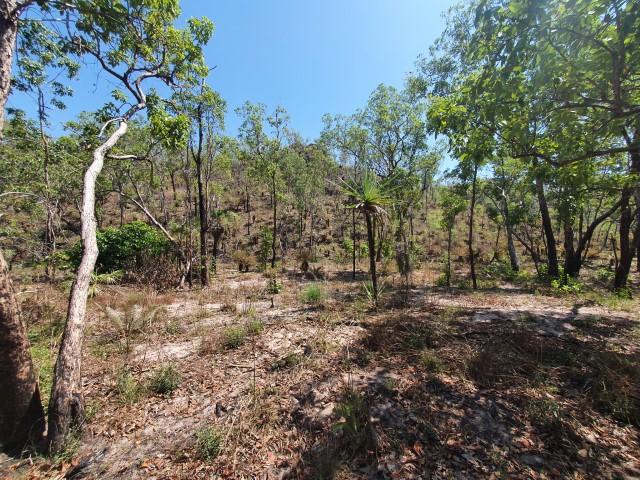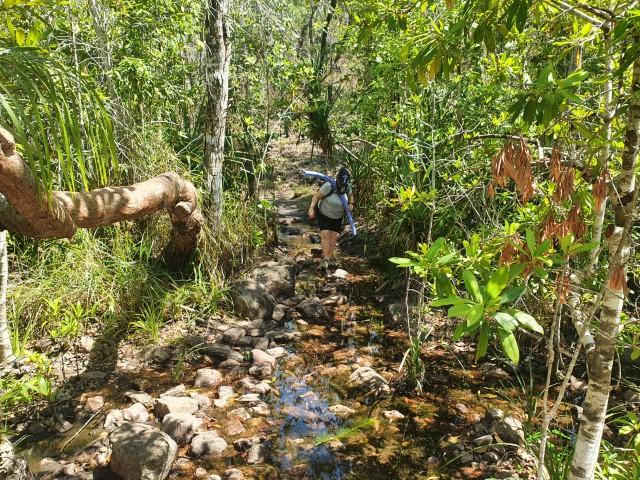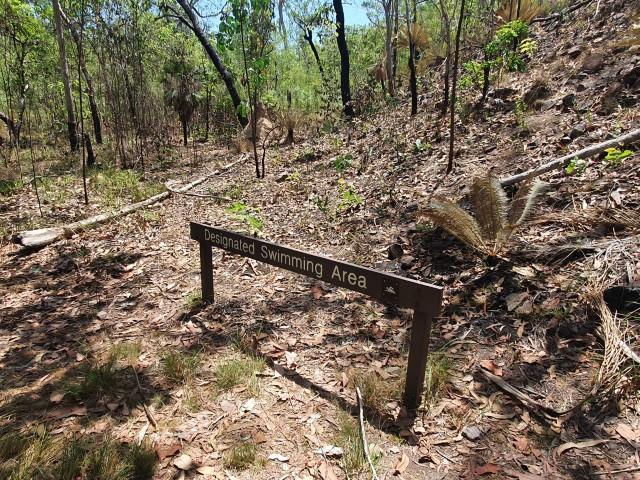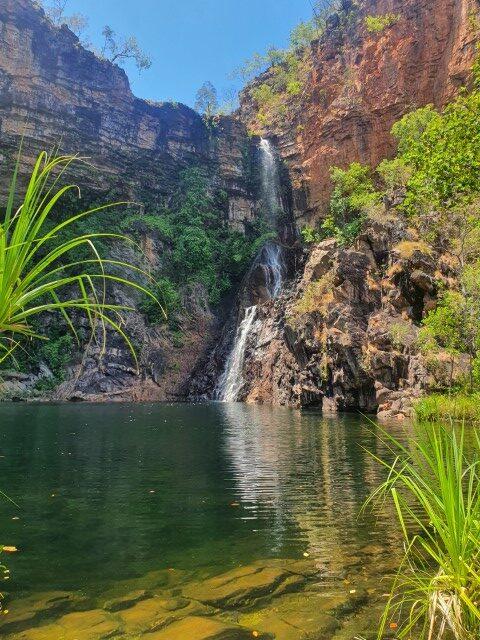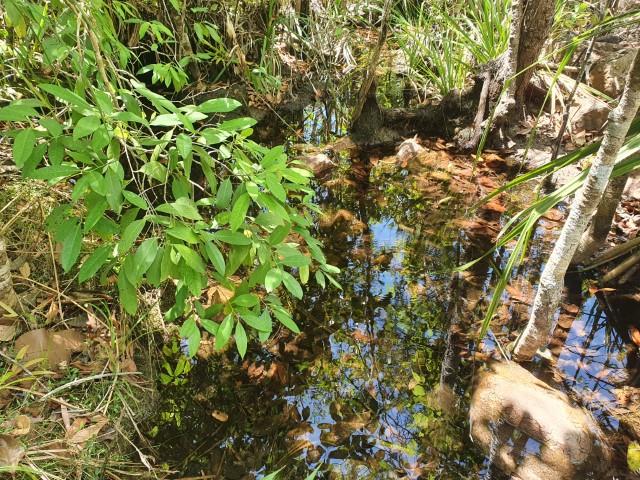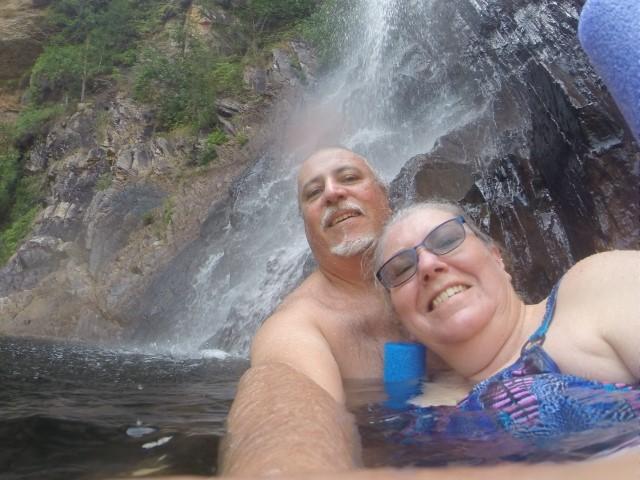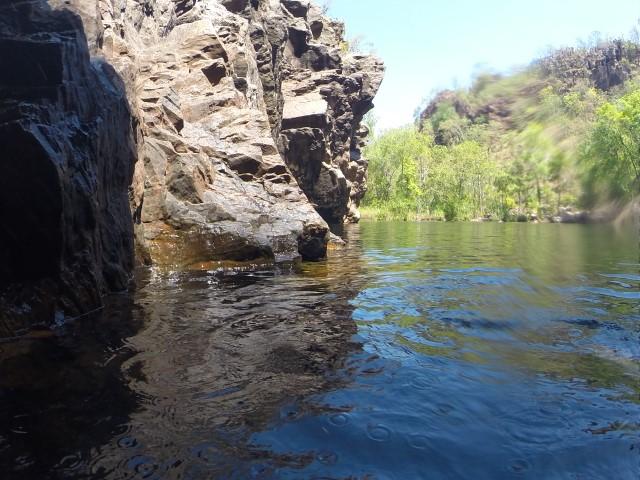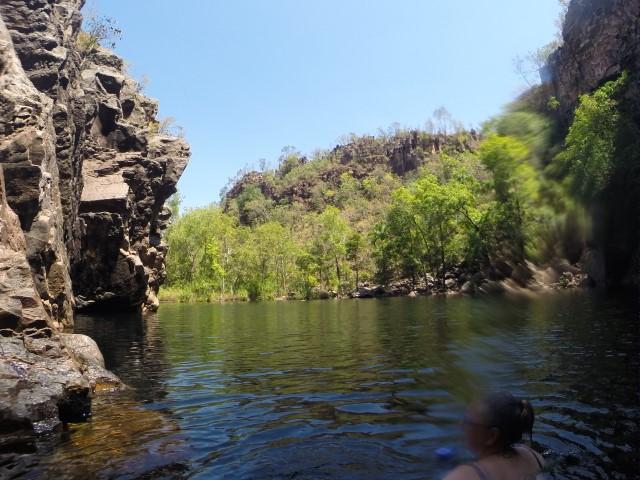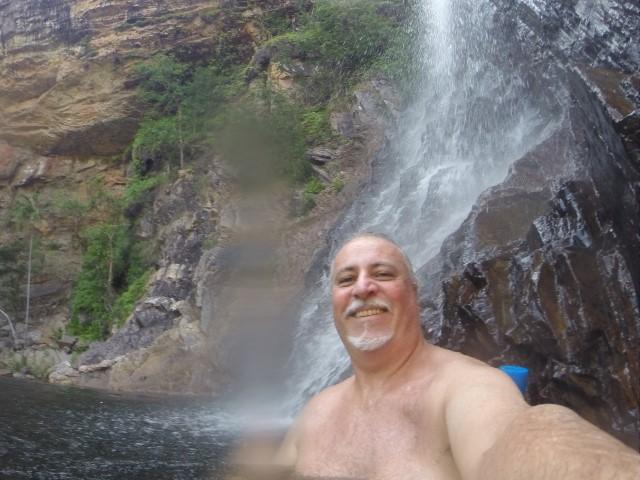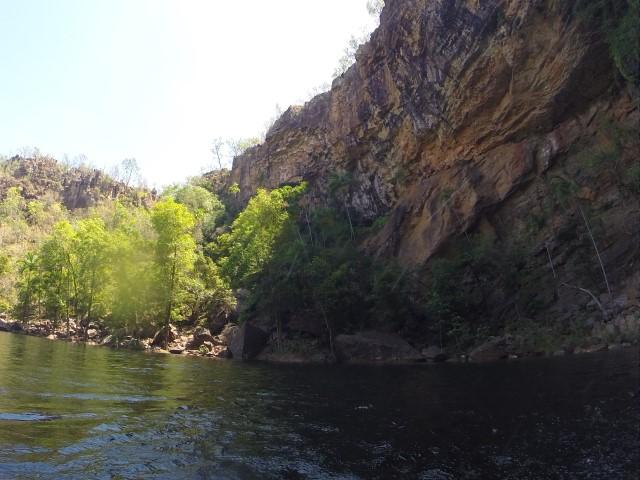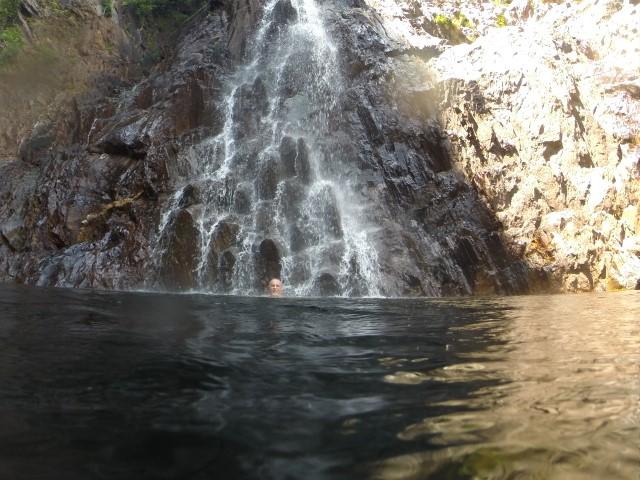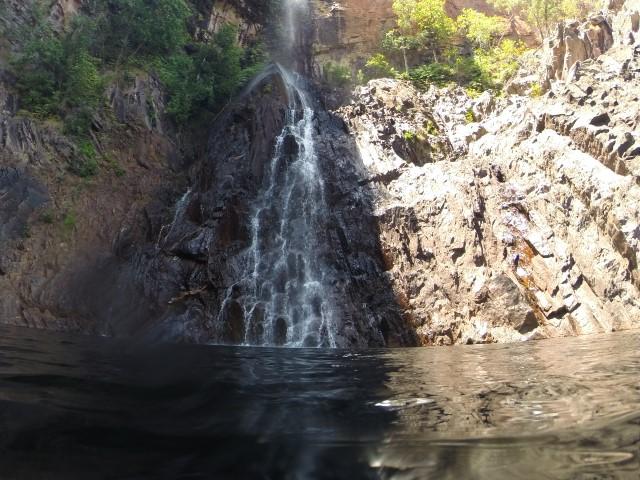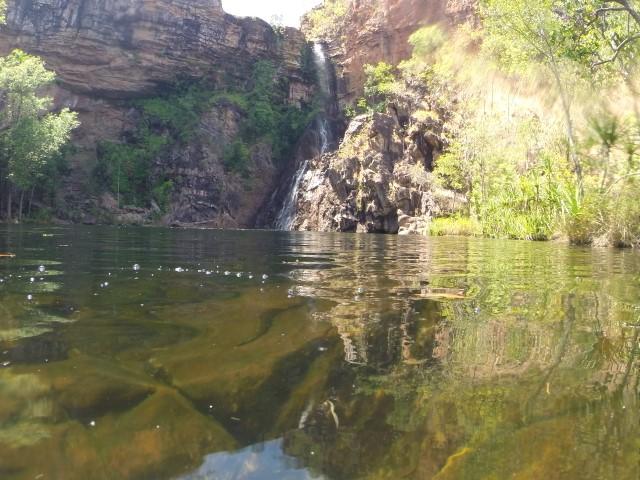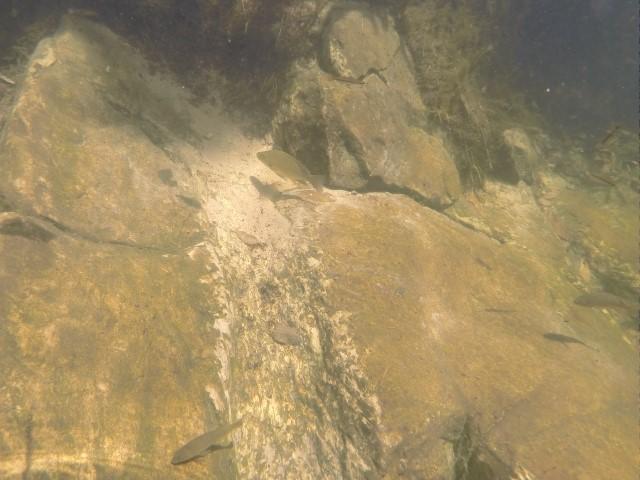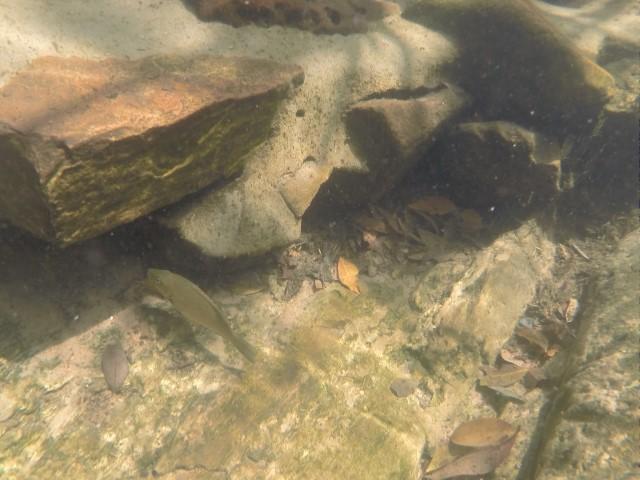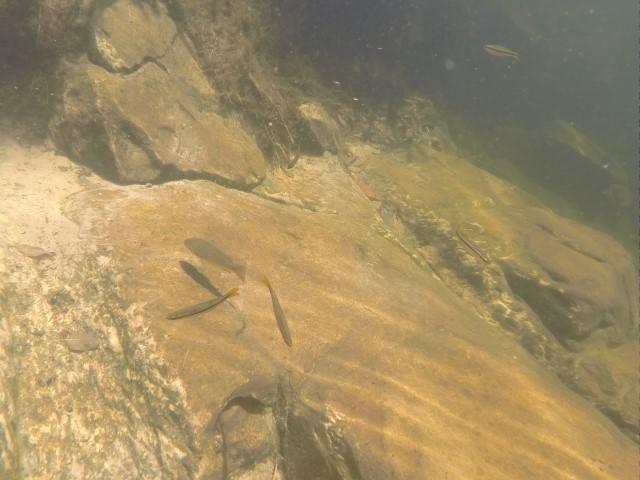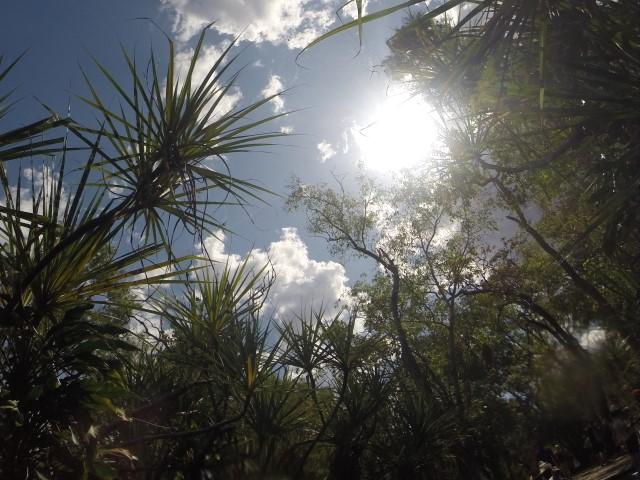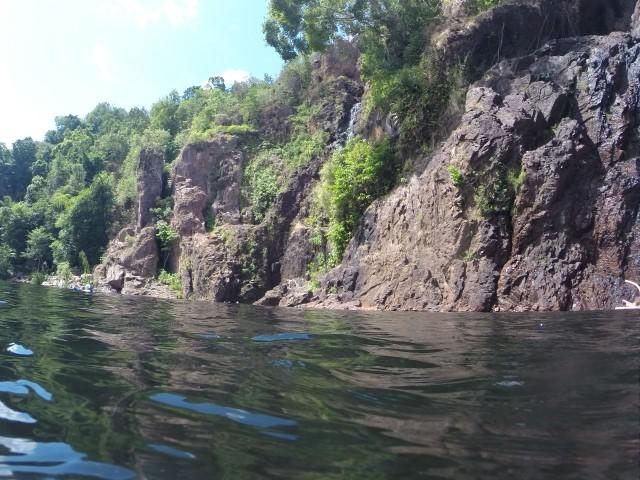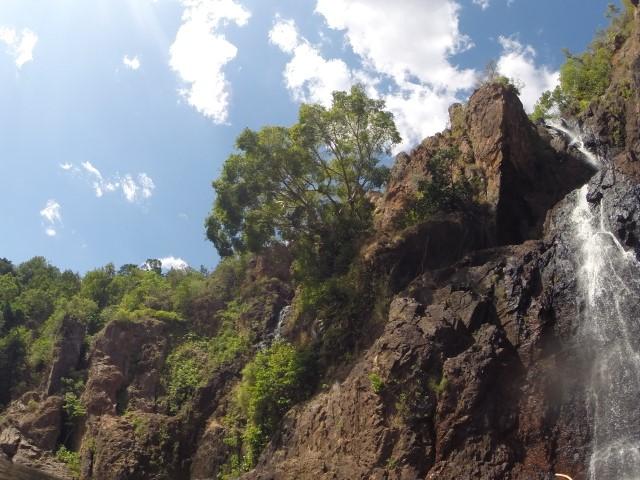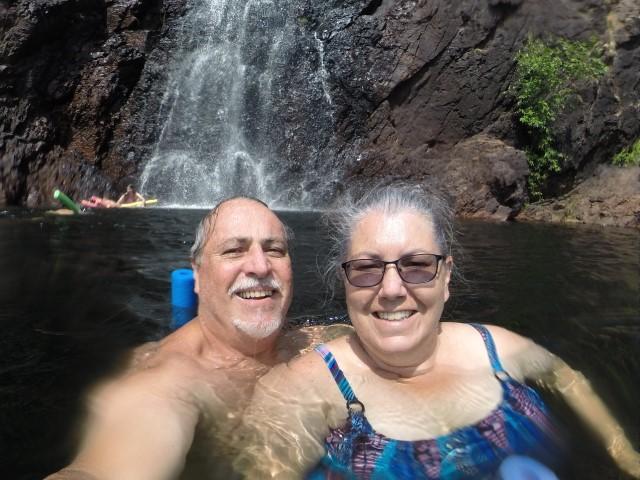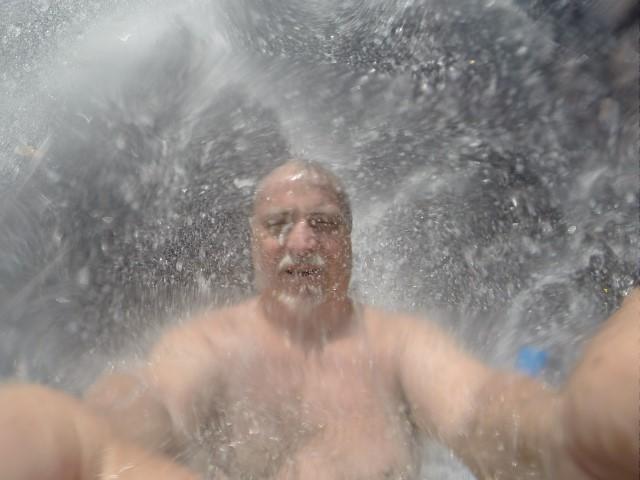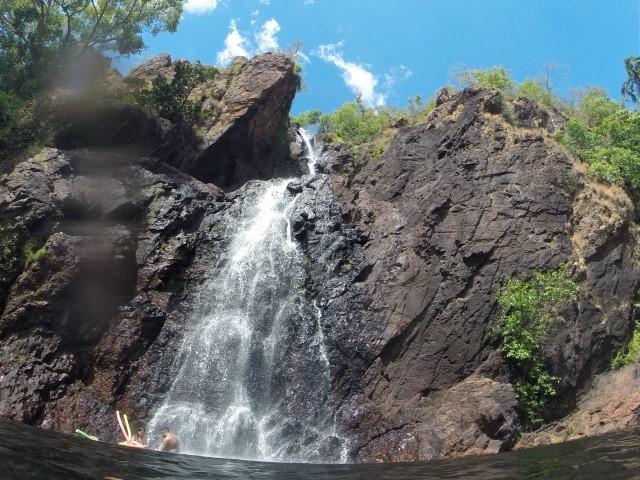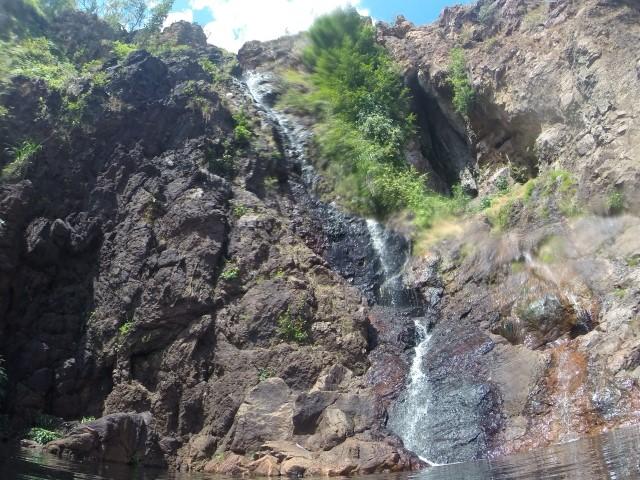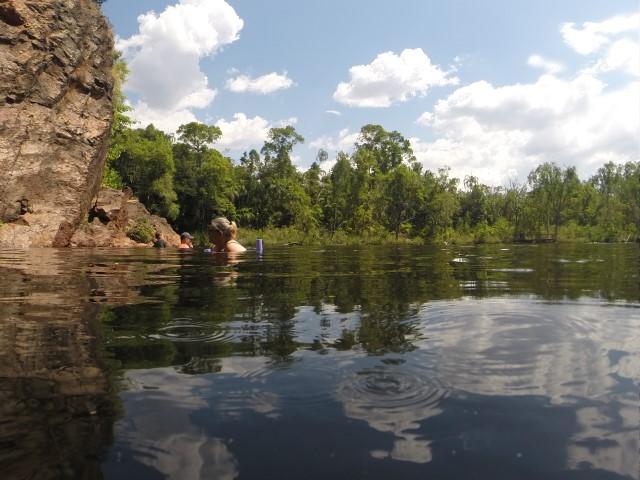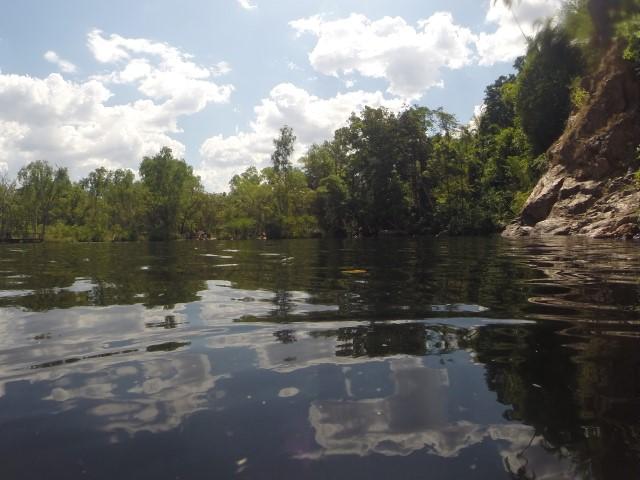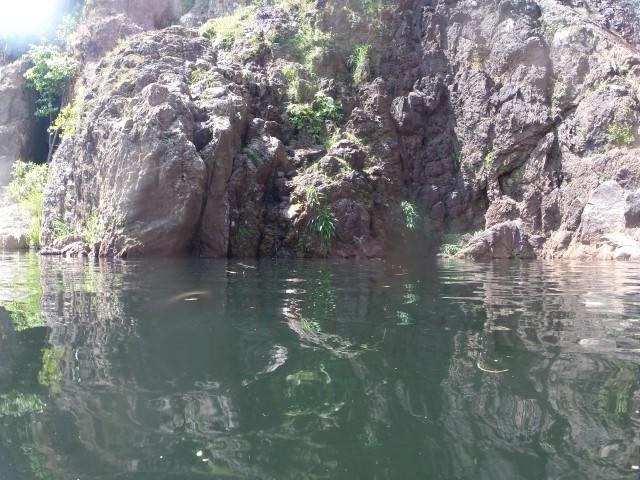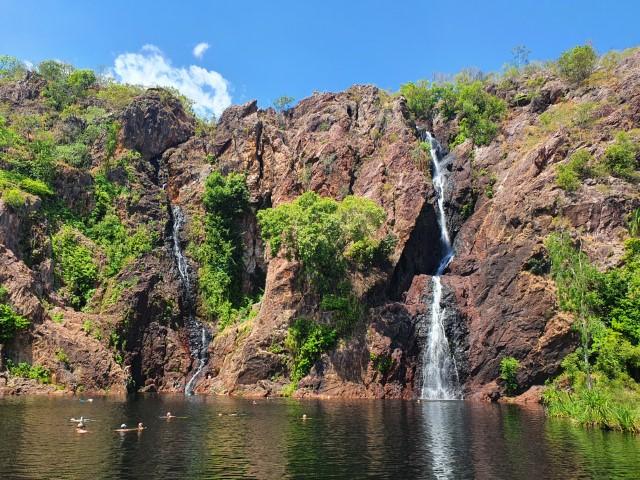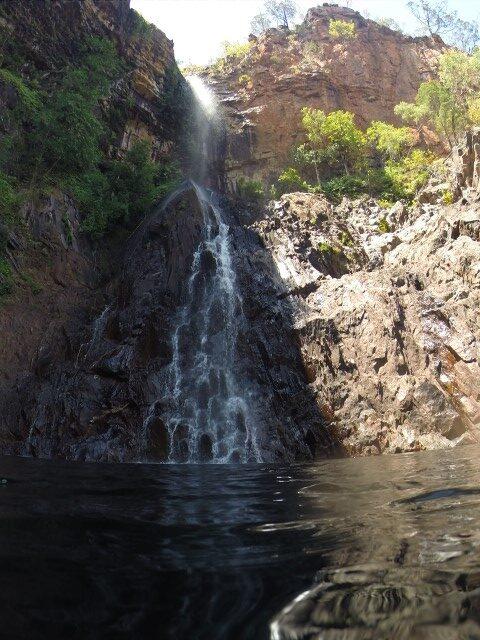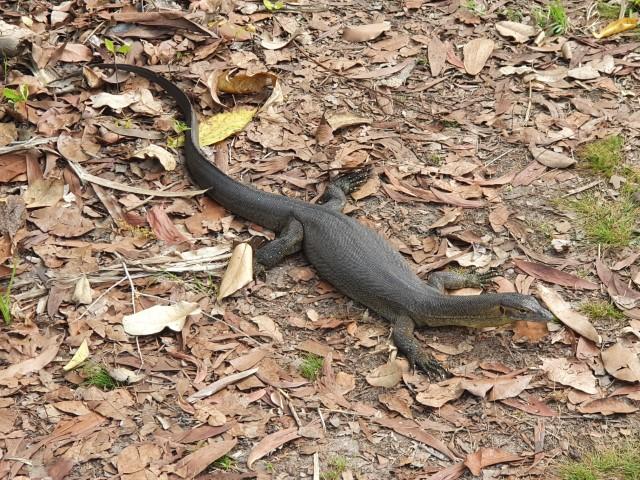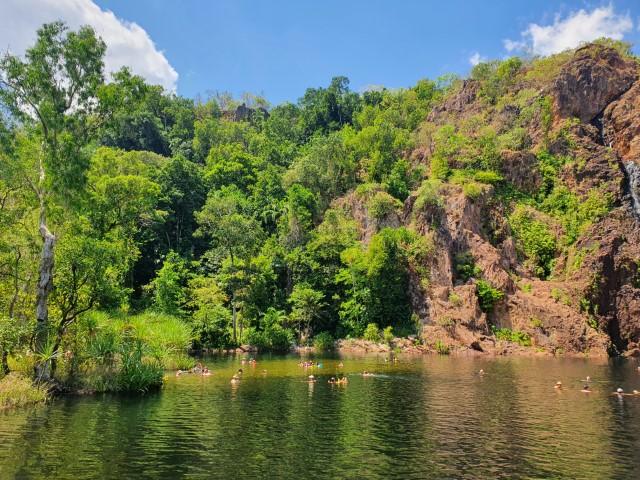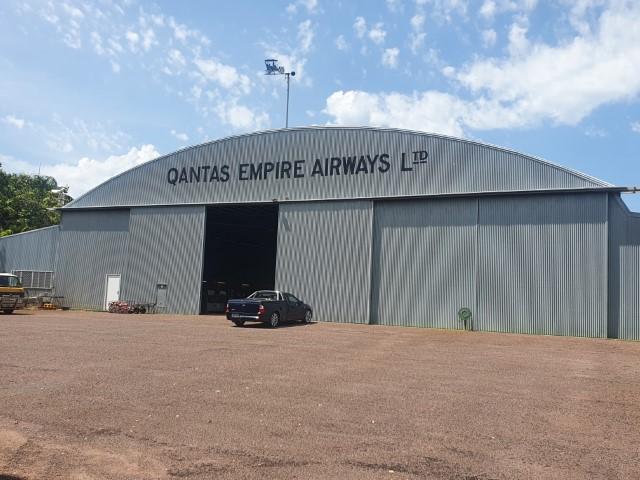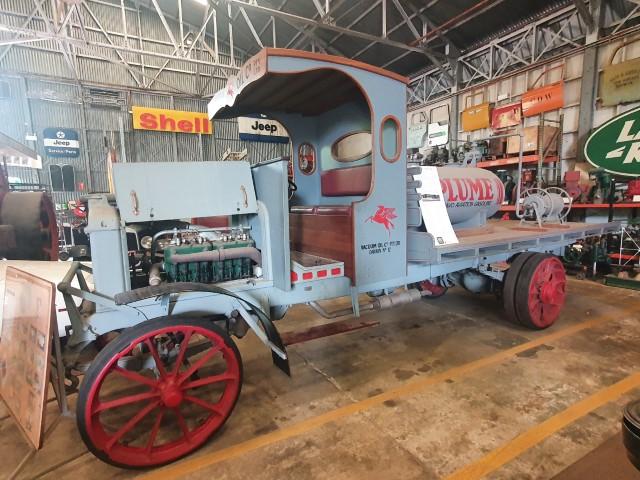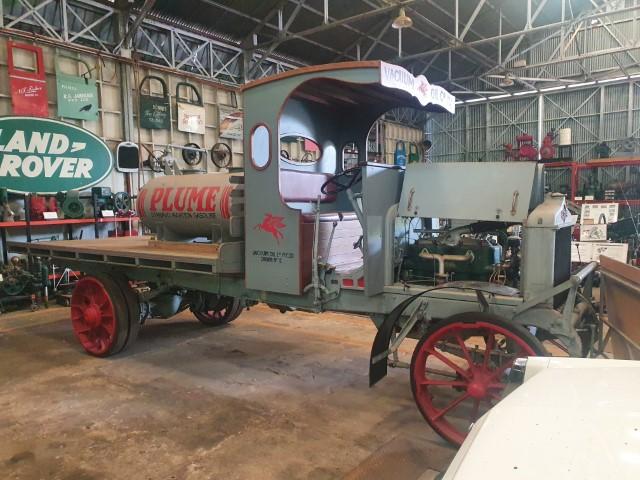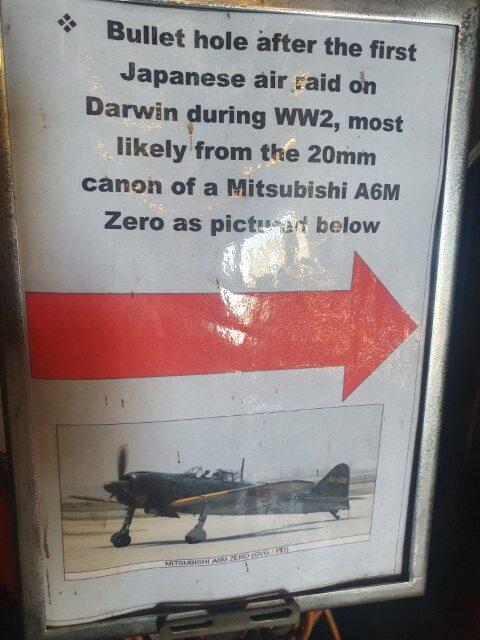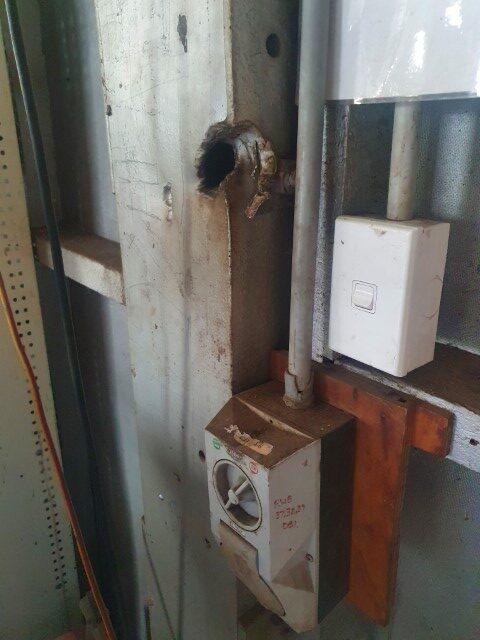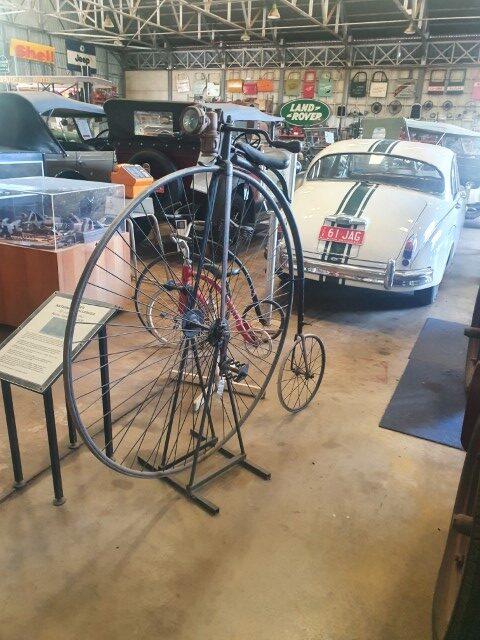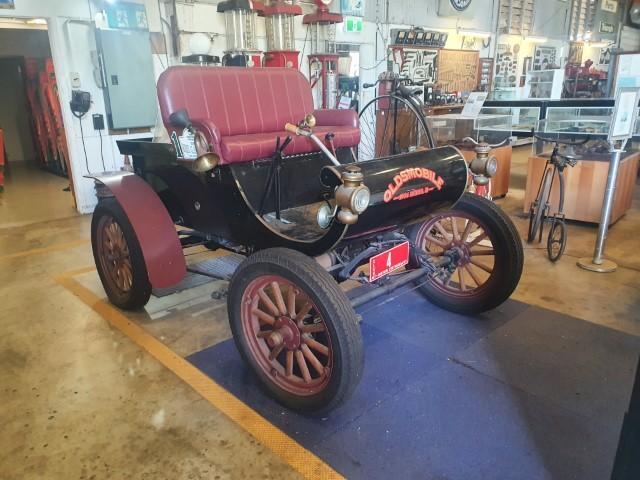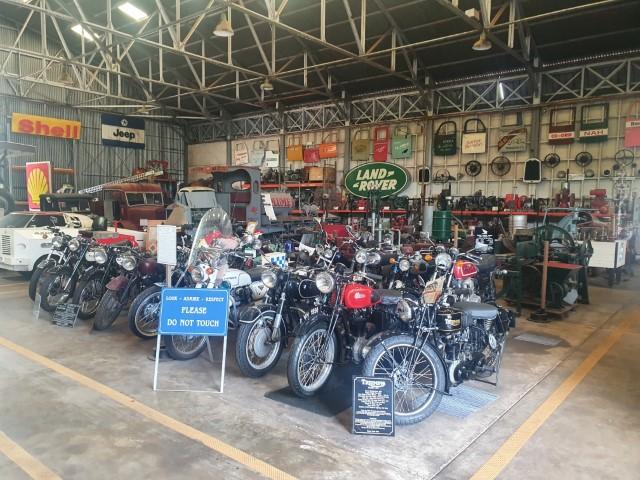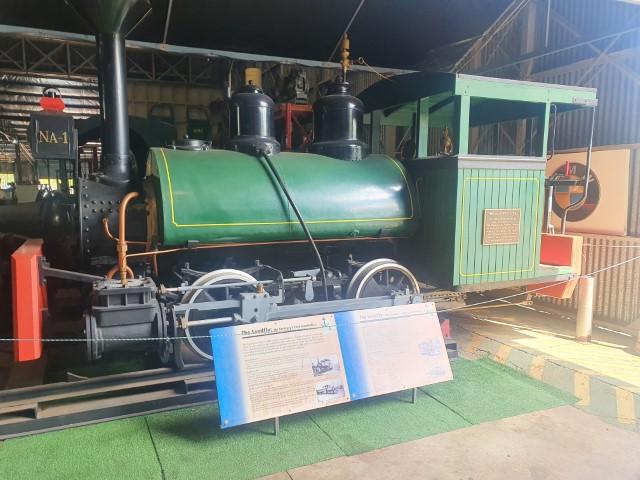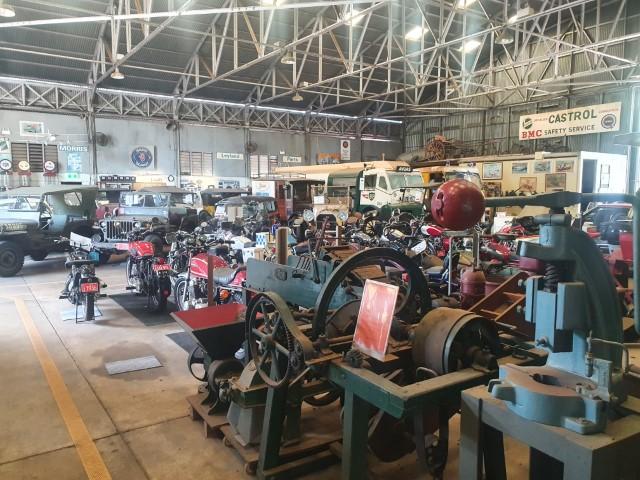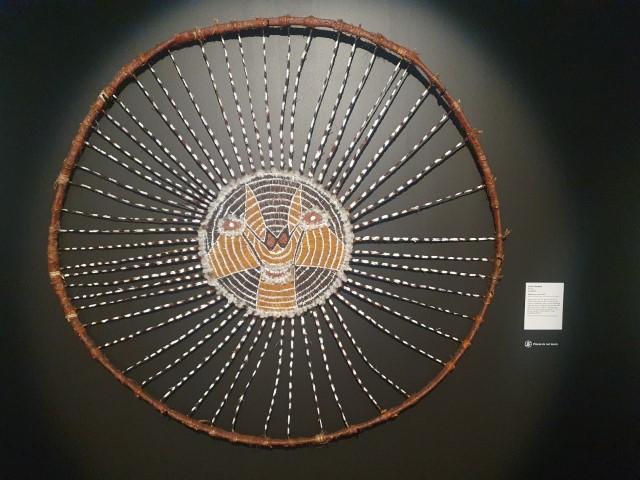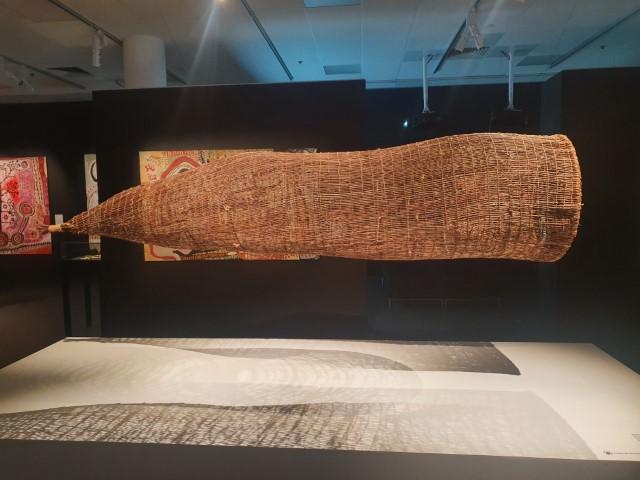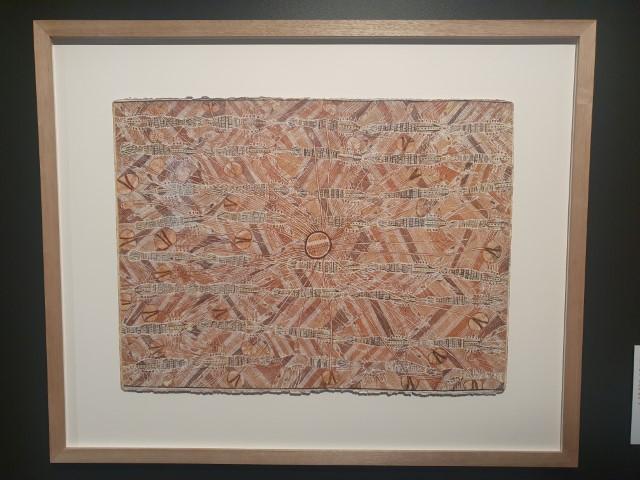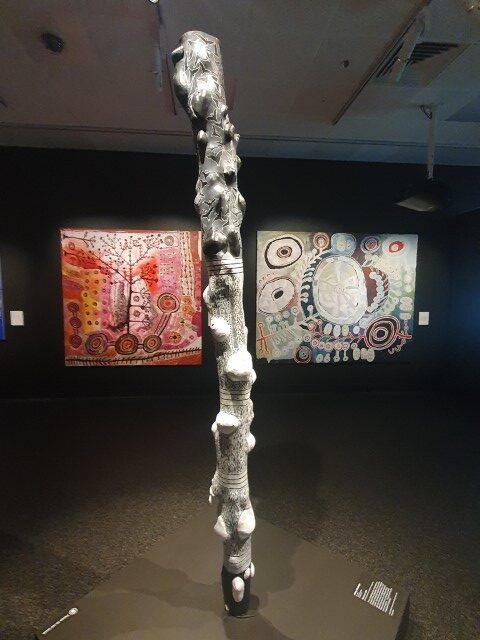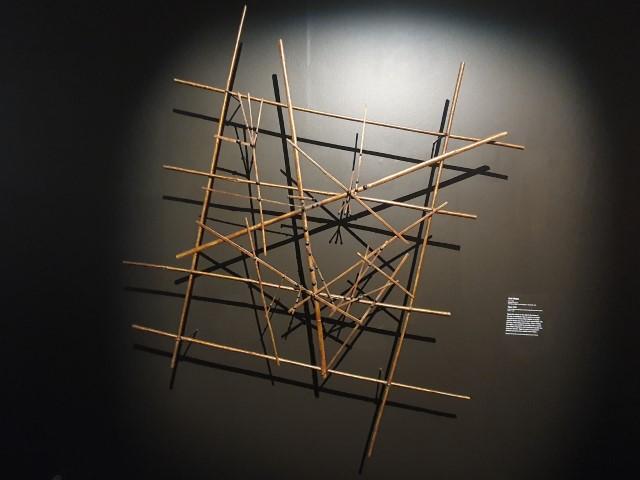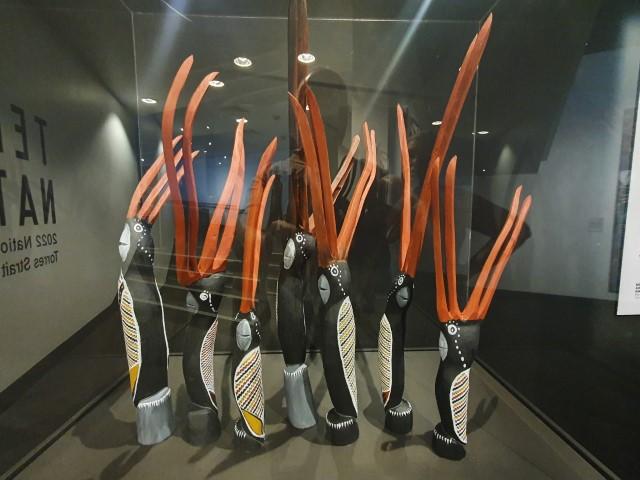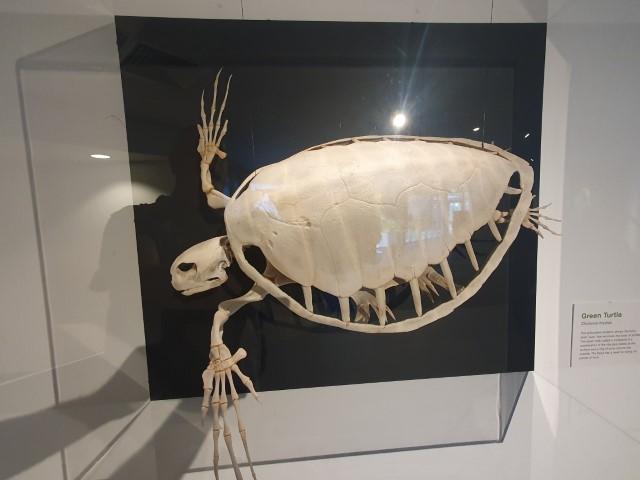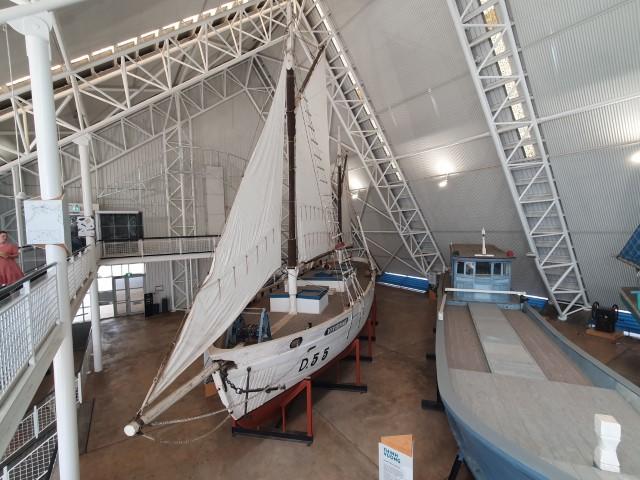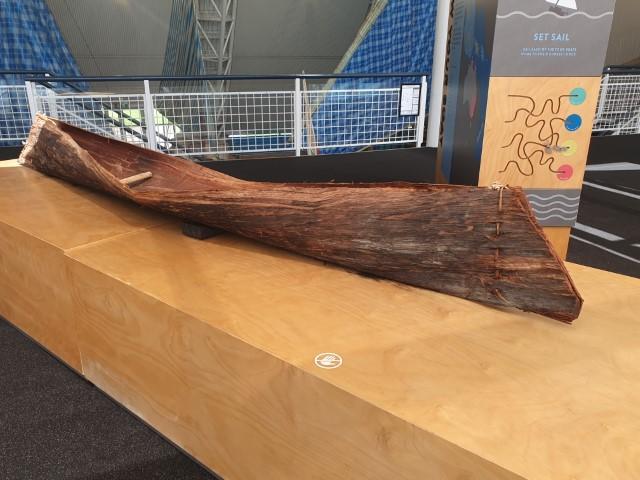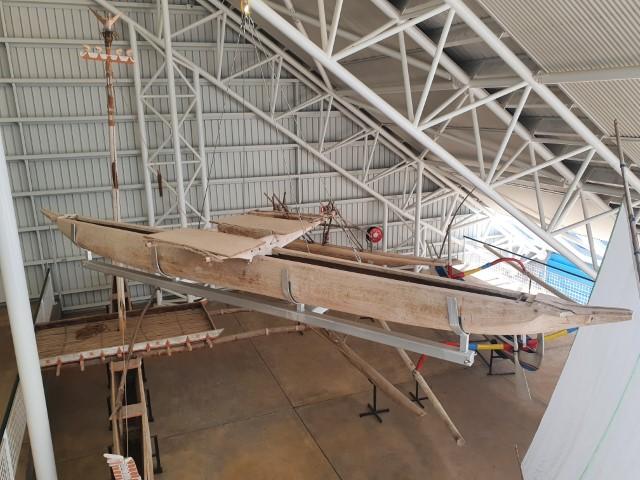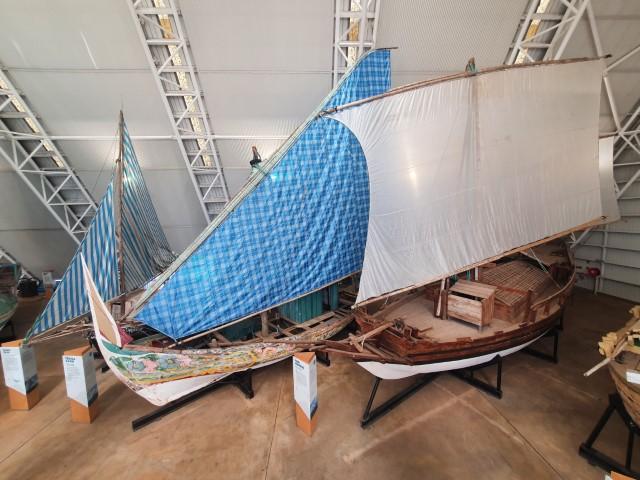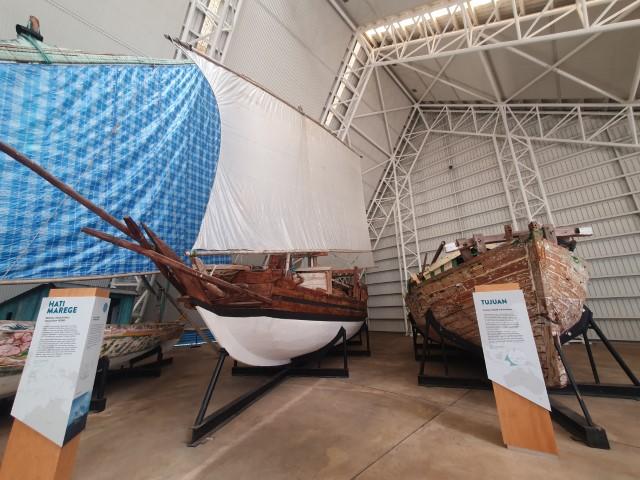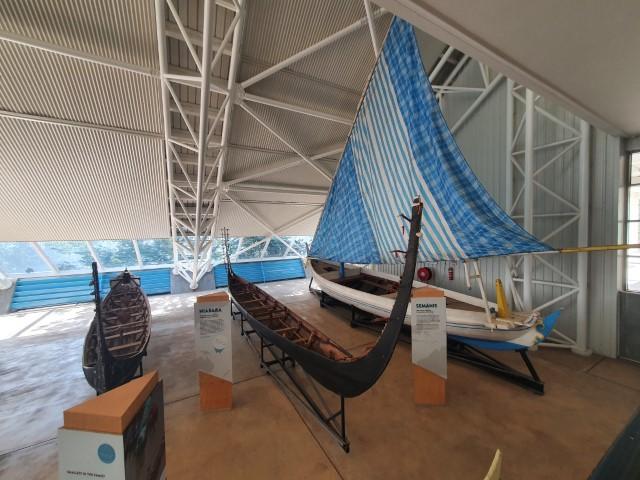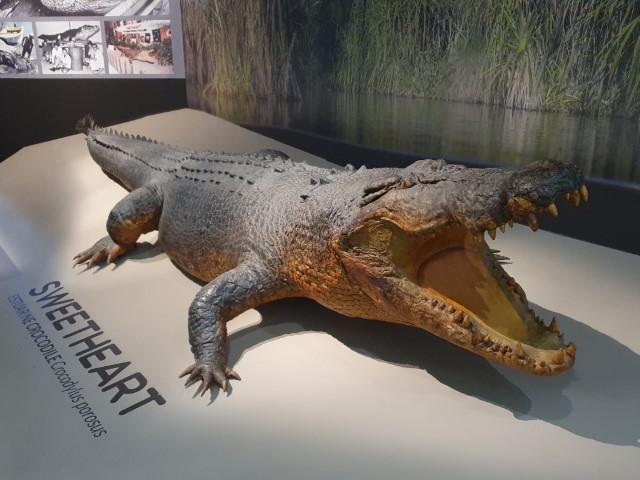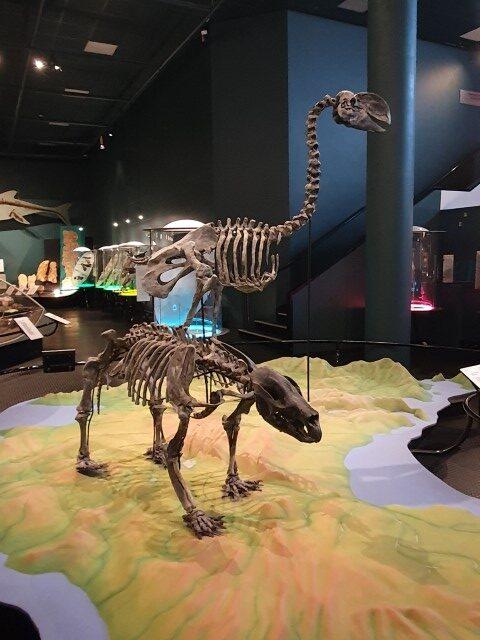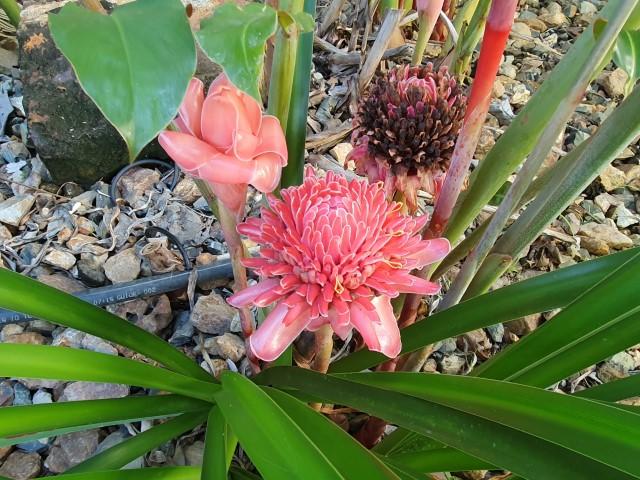At last… only a short 80km tow from Adelaide River to Bees Creek and The laughing Daisy Homestead, our base for our time in the Darwin region.
Although only a short drive up the Stuart Highway we were entertained occasionally with the sight of eagles and kites lazily soaring above the road in search of their next meal. It was a sight that was repeated from Woomera to Darwin all along the length of the Stuart Highway. Presumably the roadkill makes the highway’s easy pickings but still a nice sight nonetheless.
The Laughing Daisy Homestead
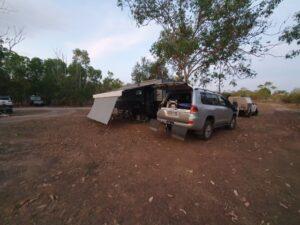
Our campsite for our time in Darwin was The laughing Daisy Homestead. A Sydney couple, Jesse and Gemma, travelled their way to Darwin and decided to put down some roots by buying an acreage in Bees Creek and setting up a small, seasonal boutique campsite.
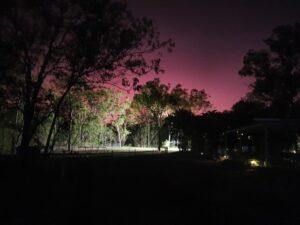
They had done an amazing job setting up full 15amp power boxes and water lines so that they could host around 10 powered sites and also had room for unpowered camping as well. They also offered a lovely cool, shaded pool and a massive camp kitchen shelter where they would do burgers for the campers each Friday night. Really nice people and a good bunch of campers made this a very relaxing and comfortable stay.
It was only 25 minutes from Darwin itelf with the Coolalinga shopping centre 5 minutes up the road that had supermarkets and various other retail outlets. Very handy after the sparsity of shops coming up the centre.
Freds Pass Markets
The laughing Daisy Homestead is locateed on Bees Creek Road, which is probably about 6km long. At the end of Bees Creek Road, just before Coolalinga is a spot called Freds Pass, which hosts a farmers market each weekend. Despite being relatively small, it was an excellent market with lots of fresh fruit and veges, crafts and the star stall for us, the Meat Bus.
The Meat Bus was a full size coach completely kitted out with fridges and freezers stocked with locally made smallgoods, bacon, fresh and frozen meats and sausages. Basically a full butcher shop on wheels. We left with a package of buffalo sausages and Boerworst sausages. Unfortunately they didn’t have any croc meat.
A Quick Trip Back To NSW
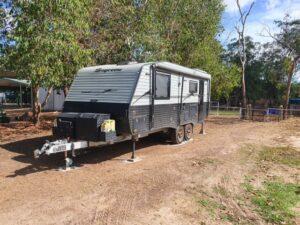
Another advantage of staying at The laughing Daisy Homestead was that it was out of town and we needed to store our van for a week to fly back to Sydney/Lithgow for our son James’ wedding to Alex. Another family caravan park, Five Acre Family, about 300m down the road, offered van storage. Not only was this convenient but nice and secure as well, being away from town on a back block. Holly, the owner, was terrific and we were able to return to the van at 1:00am in the morning when we got back. She had even run a power lead out to us so we could have the air conditioner on and actually get a few hours sleep.
Overall… we really enjoyed our two weeks in Bees Creek, punctuated by a week back in NSW for the wedding. The laughing Daisy Homestead and Five Acre Family made it really easy for us to see and experience much of the Darwin area whilst taking time out to fly back for the wedding in the middle.
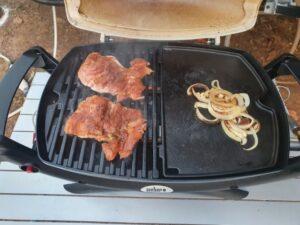
One last shout out to our very good friend Judy who hosted us for the days we spent in Sydney before and after the wedding. Rob made a comment about running low on chillie in his diet so Judy gifted him a tin of jerk spice before leaving. The jerk spice has subsequently been used for jerk chicken and jerk barramundi on the Weber. And it is VERY good…
We will leave you with one final word about the Northern Territory from A.B. ‘Banjo’ Patterson regarding the Northern Territory. It sums up the Territory to perfection…
Some day it may be civilised and spoilt, but up to the present it has triumphantly overthronwn all who have tried to improve it. It is still the Territory.
A.B. Banjo Patterson, 1898
Darwin Habour Cruise
On our first trip into Darwin we decided to take a 45 minute Darwin Harbour Cruise run by the Sealink Ferry Company that also services the Tiwi Islands and remote communities. It turned into a bit of a saga in as much as we arrived a Cullen Bay Ferry Terminal but could not find a ticket office or anyone that could assist.
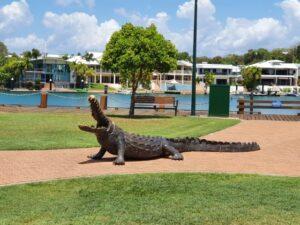
After some Googling we determined that we were in the wrong place and drove to the other side of the City to Stokes Hill Wharf. After talking to two different tour booking offices, who couldn’t help us, we re-Googled and discovered that the harbour cruise actually does go from Cullen Bay Ferry Terminal, which left us 15 minutes to go back to where we came from…
We made it with a couple of minutes to spare and Jo found the ferry and bought the tickets while Rob parked the car and made it just in time to board as they were preparing to cast off. Exquisite timing.
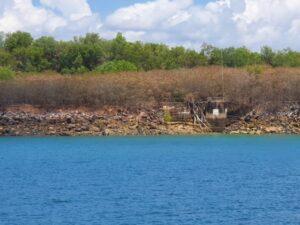
The cruise itself was very worthwhile taking in the Darwin city skyline, the naval docks, the beaches and a section of coastline where what was left of old Darwin, after Cyclone Tracy in 1974, had been bulldozed into the harbour. A very stark and sobering reminder of that tragedy.
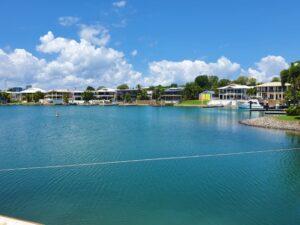
Cullen Bay itself is a fairly ritzy looking development with a tidal lock that keeps a constant water level for the expensive homes and their private docks due to Darwin‘s large tide range. It also has a cafe precinct and boutique shops which were very obviously slowing down for the buildup and wet season.
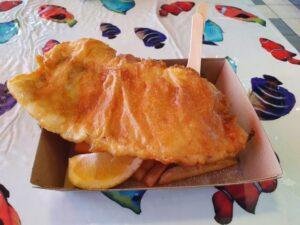
After the cruise we drove, again, back to the other sode of Darwin for fish’n’chips at the fishing boat docks. On the advice of one of the cruise deckies we both a piece (read ‘slab’) of Jew fish. Apparently not the same as East Coast Jewfish but quite honestly one of the best pieces of fish we’ve had… Certainly on this trip.
Stokes Hill Wharf
Apart from visiting Stokes Hill Wharf momentarily when we couldn’t find the Harbour Cruise, we returned to for another look later in our stay. It’s quite an impressive structure sitting quite high above the water and you actually drive onto it and park on it.
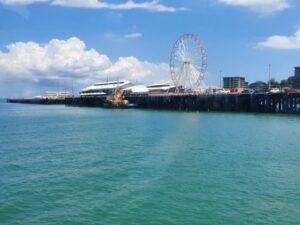
The standout feature is the ferris wheel that towers above it in front of the various buildings that also reside on the wharf. For the most part it is a food court with various cuisines available and a couple of bars, It was stinking hot on the day we were there so we sat and had a cold soft drink before looking around.
The reason we decided to go there was because the Royal Flying Doctor Service has a display centre there that we wanted to visit. It was located directly behind the ferris wheel and all the more attractive due to the air-conditioning.
Like most things RFDS, it was extremely well done and also included a large section on the Japanese raids on Darwin during WW2. The really captivating part of the displays were the Virtual Reality presentations where you could sit in a chair, don a VR headset and take an immersive 360o trip through the bombing of Darwin Harbour and also an RFDS flight from both the pilots and nurses perspective… They were extremely well done.
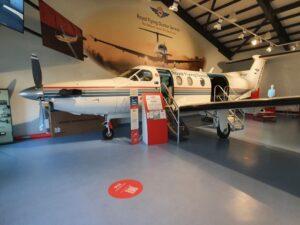
At the front of the building there was a Japanese Zero fighter plane suspended from the ceiling and at the back there was a fully kitted out RFDS air ambulance with starboard wing removed that you could climb into an view from the inside.
Crocosaurus Cove
One of the last places we visited in Darwin was Crocosaurus Cove. Located in the heart of the city centre it is a very well done building housing a number of large saltwater crocs as well as a croc nursery and various other exhibits including snakes, lizards and fish with a walk under aquarium section where you can view the salties from beneath.
We chose this over Crocodylus Park (an outdoor zoo type crocodile experience) based on the advice of others and also because we had already visited the Territory Wildlife Park, which had given served us up an excellent outdoor experience.
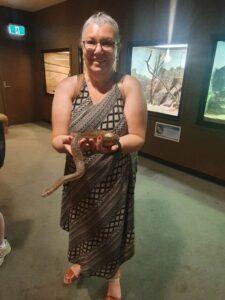
Despite being in the centre of the Darwin CBD, Crocosaurus Cove delivers a lot of entertainment in a relatively small footprint. Jo had the opportunity to hold a Blue-tongued Lizard and a Children’s Python, both of which she coped with calmly and capably.
We weren’t tempted to sit in the ‘cage of death’ at $180pp but a number of people did stump up to get up close and personal while a croc handler enticed the big crocs to leap up beside the cage to chomp a piece of dead animal. Quite entertaining but not something we felt the need to do…
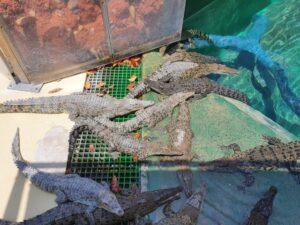
We did have a go at feeding the baby crocs, about 1.5m in length. There was a decent size enclosure with 30 or 40 juveniles crawling all over and around each other. Using a bamboo pole with small bits of meat attached we dangled it in front of a likely participant and waited for it to rear up and snatch the meat from the soft wire hook. The small crocs are quite quick and take you by surprise when they go from stationary to bite mode in the blink of an eye…
Another very interesting display was their simulated Croc bite, where they place a hefty block of ice in the mouth of a hydraulic croc simulation and chomp it. The ice shatters and what is left of the block contains huge teeth marks. The power is of the bite is immense and would completely shatter bone and destroy muscle…
We also saw a Black-headed Python being fed (a dead rat), where they lay the python on a table and induce it to attack a dead white rat and eat it. Once the python starts swallowing the rat we were free to approach the table and quietly watch the snake at close range.
Whilst there we also bumped in to Ian & Julie (from Daly Waters and Mataranka) who were now in Darwin to celebrate Julie’s milestone birthday with her family who had flown in from around the country. It was nice to see them again and find out what they’d been up to since then. Coincidences like this just seem to happen when you’re travelling full-time…
We were going to go to Berry Springs not long after we arrived in Bees Creek, which was only 25km away from the Laughing Daisy. It was suggested by other campers there that we should drop in to the Territory Wildlife Park, which was only another kilometre from the Berry Springs turnoff.
We hadn’t heard of this place so after a quick Google we decided to spend the morning at the Territory Wildlife Park and cool off at Berry Springs on the way back that afternoon. Well, we ended up spending the entire day there and enjoyed every minute of it…
Unlike Crocosaurus Cove and Crocodylus Park, which are commercial parks, Territory Wildlife Park is run by the NT Government and is less well known because it is not allowed to advertise (being a government funded organisation).
We rate it as one of the best zoo experiences we’ve ever had. It was completely natural, had great demonstration shows and was populated with all sorts of birds, fish and animals both common and scarce. We can’t recommend it highly enough.
The park exists as 6km of walking tracks that are also serviced by a hop-on/hop-off cart train that loops around every half hour. The shows are perfectly timed so that you can catch the train to each show and walk around that area.
Nocturnal House
We started in the Nocturnal House where we saw all sorts of night-time creatures in special display areas that simulate low light night-time conditions. Quolls, possums, lizards, frogs and marsupial mice were all on display and easy to find one your eyes adjusted.
Flight Deck & The Aviary
The Flight Deck isa live free flight demonstration where we were enthralled by the ‘silent flight’ of a Barn Owl, the sky drop fishing of an Osprey and an amazing Black-breasted Buzzard that cracked open a replica Emu egg by repeatedly throwing a stone onto it, mimicing it’s natural behaviour…
Each bird would fly in as required and perform it’s distinctive behaviour before flying back to their perches. We’ve seen a few free flight bird shows around the world and this would probably rate as the best in our opinion.
The Aviary was a very large netted dome nearly the size of a football field with a boardwalk that spiralled to the top of the central trees and contained hundreds of native bird species. The boardwalk allowed you to get up close to the birds perching in the branches and view them at their level. Quite a unique experience.
Oolloo Sandbar
Oolloo Sandbar is a fresh water billabong and beach where we watched our first live show. It was incredibly impressive with a ranger explaining about freshwater whiprays, barramundi and archer fish whilst hand-feeding them.
The (very large) barramundi would circle around the offered (by hand) fish and then ‘boof’ it by sucking in a huge mouthful of air and water to capture the bait. After the barramundi feeding, the ranger would attract the whipray’s to glide up onto the beach and hoover up small fish from his palm, mimicing their natural mode of attack.
Finally, and most impressive of all, he would dangle an insect at shoulder height from the water’s surface and the archer fish would come in and spit a glob of water up to hit the insect, which would then be dropped into the water for it to eat. Once again mimicing the natural hunting behaviour of the fish. Utterly mesmerizing to see this live…
Aquarium
After the Oolloo Sandbar show we stopped into the Aquarium that housed a series of tanks that mimic top-end rivers and waterholes as well as mangrove and coastal reef tanks. There is a walk-through tunnel where the whiprays glide over you as well as an enclosure housing their 4m saltwater crocodile.
The displays were captivating and very natural, letting you get very close to some very dangerous creatures and some enormous barramundi.
Outside the museum was a sculpture garden containing around 30 giant clam shells. This was a memorial to those clams, which had been taken illegally by foreign fishermen.
Billabong
The park has a Billabong that houses turtles and pelicans in a lush, green setting that is both calming and relaxing, especially on a hot, dry day like we were being subjected to…
Other Habitats
It was a very full day that also included a walk through the Monsoon Forest, the Woodland Wallaby Walk and the Buffalo Trail, which was denoted by some metal sculptures of water buffaloes being mustered by a small helicopter (mounted on a pole).
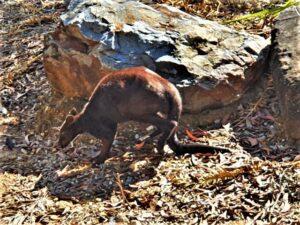
There were two special enclosures, one holding a very rare black wallaby, which is actually coffee coloured as opposed to black. We were lucky in that it was out when we were there and didn’t shy away as everybody approached with cameras clicking…
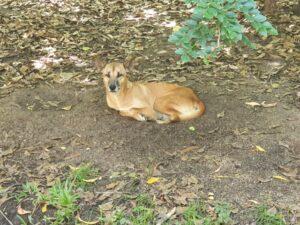
The other special enclosure contained two dingoes that were actually found one day by one of the rangers after they hed been abandoned by their mother. The rangers hand-reared the dingo pups, built and enclosure for them and kept thm on display.
It was probably the best non-swimming experience of our time in Darwin and certainly the most unexpected…
Berry Springs is a small locality about 25km south-west of where we were staying at Bees Creek. We had originally planned to visit these springs earlier in our stay but postponed it until we had returned from James’ and Alex’s wedding in Lithgow. After our return the buildup had become noticably hotter and more humid so a visit to Berry Springs was definitely in order.
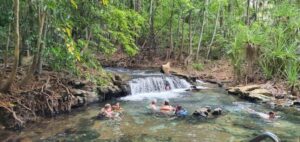
Berry Springs is another top end spring that feeds Berry Creek with crystal clear water that is perfect for floating and relaxing in with a pool noodle. It is popular with tourists and locals alike being easily accessible and well monitored from crocs.
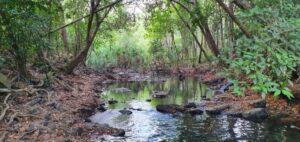
The waters flow through a series of rocky cascades creating a number of pools. You can slide your way down the series of pools or just plant yourself in one of the deeper ones and relax. We were lucky that we chose a relatively quiet day (the prerogative of the retired traveller) where we could enjoy the swim as well as the natural beauty of the place without any screaming hordes.
It sometimes seems that travelling in the N.T. could be described as driving through a wonderfully picturesque, arid red earth landscape punctuated by floating your cares away in crystal clear swimming holes of equally picturesque beauty…
Mindil Beach Markets
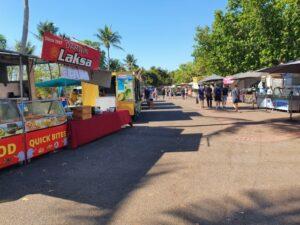
The Mindil Beach Markets are a Thursday/Sunday institution in Darwin… They start at 4:00pm and go until 9:00pm. Mainly populated with food stalls and also some jewellery, clothes and crafts stalls as well. The general idea is that you go there, have some food and then settle in on the beach to watch the sunset over the water.
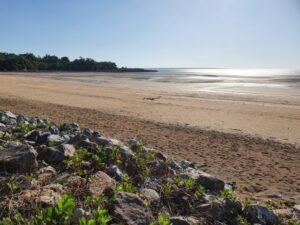
We arrived a little before 4:00pm whilst the stall holders were busily setting up preparing the wares. After a quick look around before the crowds descended we took a walk along the track that follows the beach past the resort hotels. It was slightly reminiscent of a mini Honolulu with beach on one side and beautiful-people sipping expensive cocktails in their infinity pool… Each to his own.
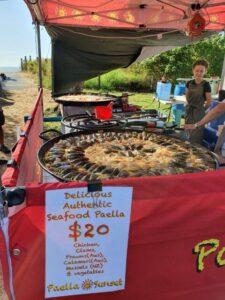
Returning to the markets we had another look around at the wares before choosing something to eat. Rob, typically, chose a Laksa just in case we didn’t to try Mary’s Laksa at the Parap Markets. Ultimately… it wasn’t a good choice being to thick with coconut milk and fairly bland. He found himself wishing he had gone for the giant paella instead.
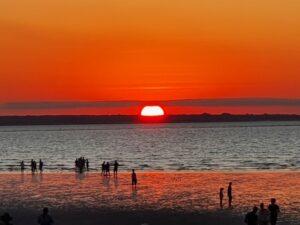
But what the Laksa lacked was more than made up for by the sunset viewing over the water. The setting sun provided a glorious display of the spectrum as it dipped over the horizon and continued to colour the sky with vibrant hues of red, orange and purple after the event.
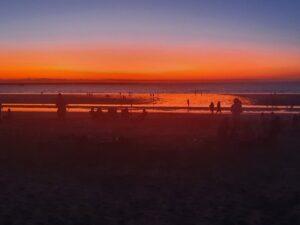
It was surprising how quickly the sun disappeared once the bottom of the disk met the dividing line of the horizon. Like Uluru and Kings Canyon at sunset, you find yourself taking far too many photos and then agonising over which ones are the best and which to discard…
Appararently the tradition is for the beach goers to applaud as the sun drops over the horizon. We didn’t really understand why this is but it happened anyway and we joined in with a few perfunctory percussive notes ourselves. The dazzling sky palette continued on for quite some time after the sunset so we wandered along the beach for a while half expecting to see a croc attack the onone of the foolhardy tourists down at the waters edge.
Parap Markets
So…on our return to Bees Creek from our wedding trip we made sure that we went to the Parap Markets for the world famous Mary’s Laksa.
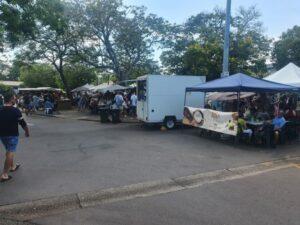
Parap Markets are a year round, sunday morning market located in Parap Village. We were surprised to find that it is like a small town square in the middle of a shopping centre that is jam-packed with stalls of all kinds.
Despite getting there reasonably early the two lines for Mary’s Laksa was already 10m long in both directions but we had heard that the wait can sometimes get over 30 minutes. Once again we were relatively lucky and were at the serving counter in around 5 minutes.
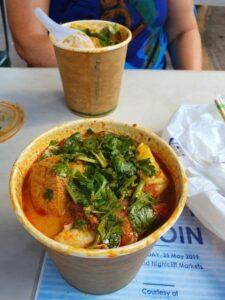
Mary’s Laksa is a top end icon and they only take cash so we sort of expect that Mary is making a small fortune and probably has a few expensively stuffed mattresses in her house. Good on her… They do work bloody hard.
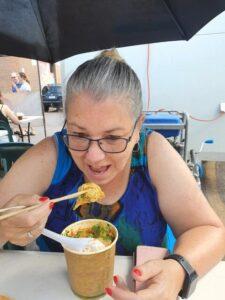
The Laksa itsef was very, very good. Jo had a Wonton Laksa and Rob had the Special Combo. In all honesty, not ‘the best’ laksa based on Rob’s extensive Laksa consumption history but possibly top 3. Well balanced coconut and curry broth, generous prawns/chicken/pork/tofu , good mix of rice and egg noodles and lots of fresh corriander.
All in all… Mary rightfully deserves her reputation!
Sandy Creek
We had previously visited Litchfield National Park from our stay at Adelaide River. After our return from the wedding trip we decided to go back a second time to see a bit more of this wonderful area. It was a tough decision in that we chose not to see any of Kakadu due to our need to move on from the Darwin area while things were still open before wet season closed in proper.
Our destination on this visit was Sandy Creek (Tjaynera Falls) and Wangi Falls. Sandy Creek was our first destination because it required a 9km drive in over a rutted 4wd track including a water crossing. The water crossing was 40-50cm deep and probably around 100m in length at the time we went through.
The water crossing going in…
The water crossing coming out…
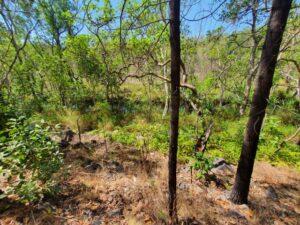
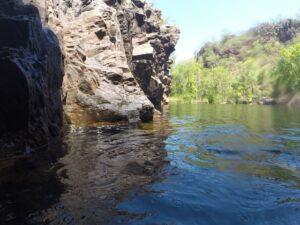
The 9km drive in took about 30 minutes and once there we faced a 25 minute walk in the oppressive heat to reach the falls and swimming hole… But when you get there it instantly becomes worth every second spent getting there (and going back out again).
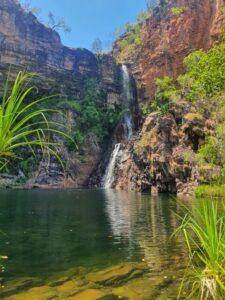
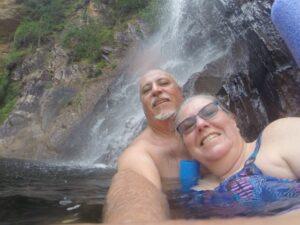
What you get is a beautiful, big, deep water hole with the magnificent Tjaynera Falls on the far side constantly spilling over the cliff above creating a small tropical oasis. When we finally got there there was only a fanily of four and one other couple at the waterhole. By the time we were in the water the family had left and the couple were sunbaking in a quiet spot on the banks. So we had the entire waterhole to ourselves for about 15 minutes before another group arrived. A truly memorable and unexpected moment of indulgent pleasure that we rightfully deserved…
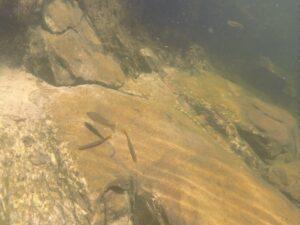
Like most of the other big waterholes and springs in the Darwin region, this one was teeming with fish, which were well acustomed to humans invading their territory. These ones were a little larger than palm sized and more than happy to dart around close by; only disappearing into the rocky cracks if youmade a sudden movement in their direction.
Wangi Falls
After emerging from the pleasure of Sandy Creek and Tjaynera Falls in was only a short drive back to Wangi Falls.
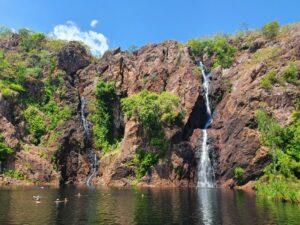
Wangi Falls is a much more accessible and touristy waterhole with two streams flowing into an expansive and deep waterhole. The carpark is quite large and caters for cars, caravans, campers and tour coaches. We were expecting large crowds but were pleasantly surprised to find that the numbers weren’t huge with plenty of room for more swimming and floating.
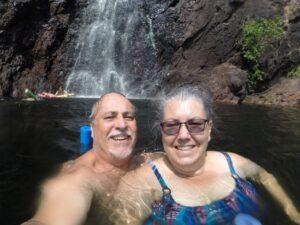
There’s an extensive grassed area with the usual information signs as well as some sheltered tables with signs saying that tour buses have preference for their use! Since they were’nt fully occupied we sat at one to have a late lunch before going to the falls.
The falls themselves are a twin falls with two well separated streams tumbling 40 to 50m into the enormous swimming area. Thankfully it wasn’t too crowded and once again mounted our pool noodles and began the slow paddle across to the falls in the pleasantly ‘just above cool’ water.
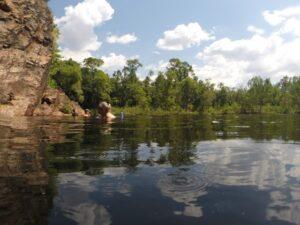
The thing about the more accessible swimming holes is that your enjoyment of their beauty and experience is directly proportional to the attitude of the other people there… Wangi Falls is immensely beautiful but the spell is broken slightly when you have loud people who won’t shut up about themselves or whatever inane thing is happening in their lives at that time… We still had a wonderful time despite a handful of these insanely boring types of people. The waterhole is large so you can swim away.
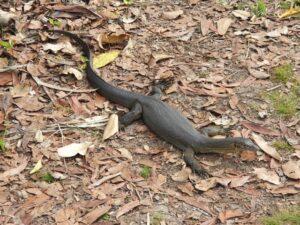
As lovely as Wangi Falls is we were very glad that we made the effort to visit Sandy Creek first and experience the guilty pleasure of having the waterhole all to ourselves. Wangi Falls did serve us up one last treat though before we left, which was a visit by a friendly Merten’s Water Monitor. Quite a handsome fella’ who was happy to sit in the sun and pose for photographs.
1934 QANTAS Hangar
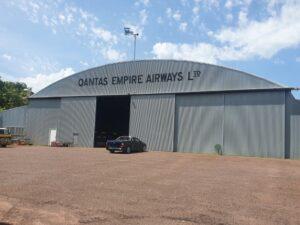
On another recommendation we sought out the 1934 QANTAS Hangar, which now houses the Northern Territory Motor Vehicle Enthusiasts Club. It is located in the streets of Parap amongst everyday houses but is chock full of history and vehicles from yesteryear.
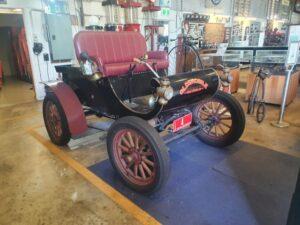
Despite it’s plain and non-descript appearance; it stands exactly as it looked in the 1930’s. Entry only costs a gold coin donation and once inside the hangar you are free to wander amongst a huge collection of vintage and historic cars, trucks and Darwin’s first steam locomotive.
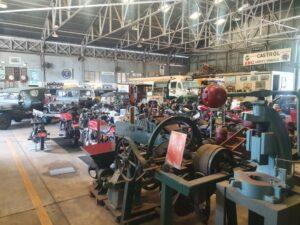
The hangar houses not only vehicles but a large array of wartime memorabilia, vintage tools and equipment and also has a large restoration area where the volunteers go about the restoration process.
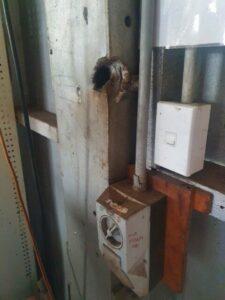
If you look closely on one of the steel support posts you will see a bullet hole from a WW2 Japanese Zero fighter plane that has been left there. The size and ferocity of the hole is a very sopering reminder of the hell that was rained on to darwin during the Japanese raids. More bombs were dropped on Darwin than Pearl Harbour…
The 1934 QANTAS Hangar was quite a surprising find in Darwin and highly recommended to visit by us,
Museum of the Northern Territory
Our last outing in Darwin was to the Museum and Art Gallery of the Northern Territory (MAGNT). This was another unexpected and wholly enjoyable experience with a range of galleries and exhibits that truly showcased the magic of the Northern Territory. The exhibits were extremely well presented without clutter (or wasted space) and provided enough detail about each to hold your interest without boring you with unecessary detail.
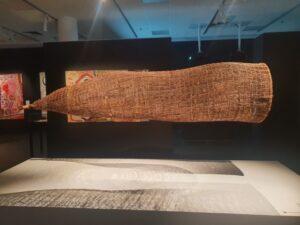
The indigenous art section contained a mix of traditional and contemporary exhibits. The most interesting were the sculptural exhibits including a magnificent fish trap and a bamboo map amongst other things. The intricate and detailed craftsmanship of these objects matched the stories behind them and their significance in indigenous culture and history.
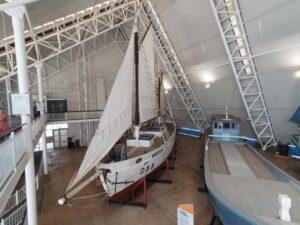
It was a fiercely hot day while we were there so the next exhibit was viewed was the maritime exhibit, in the non air-conditioned annex. It was worth the sweath as well. The large covered annex housed all manner of boats from the last Darwin pearl lugger to confiscated refugee boats, sail boats of note, war canoes down to a simple but functional bark canoe.
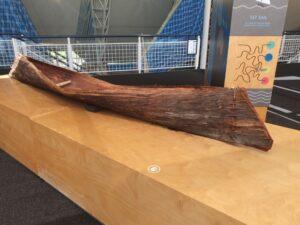
It was a somewhat eclectic collection of boats that told a patchwork history of indigenous, foreign and conteporary boating in Darwin. The bark canoe in particular showed the immense skill that indigenous Australians possessed to make a seaworthy boat from a flat sheet of bark with primitive tools.
There was a very good exhibit on Cyclone Tracey and the devastation it caused in December 1974. One exhibit was an open walled room with 70’s decor playing a recording of the ABD radio transmission of that day. Seeing the photos and hearing the recordings paint a much more detailed and sobering account of this disaster than we could ever understand it from half a continent away.
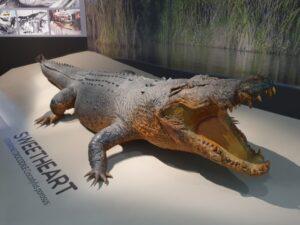
Another section showcased an extensive taxidermy display of Northern territory animal, birds and fish along with the skeletons of some Australian megafauna from pre-history. Perhaps the most impressive piece of taxidermy was that of ‘Sweetheart‘ the saltwater crocodile. Sweetheart was a 5.1m saltie that took to terrorising locals by attacking their outboard motors. Sweetheart was captured but ultimately died from drowning after it’s leg became trapped after too much sedative had been administered. Sweetheart was apparently the ‘inspiration’ behind the Australian movie, “Rogue“.

